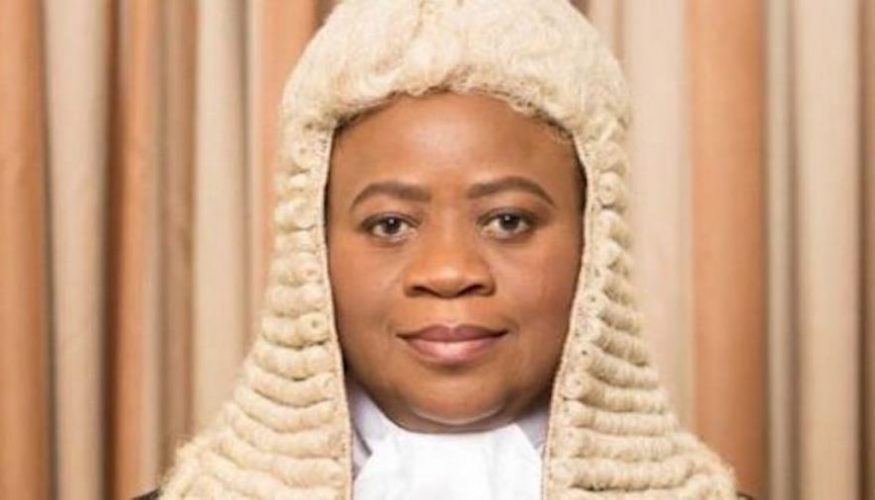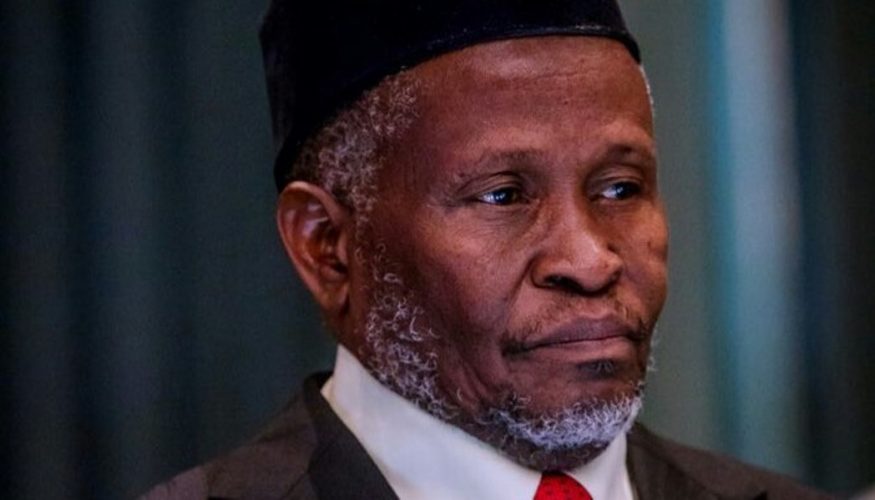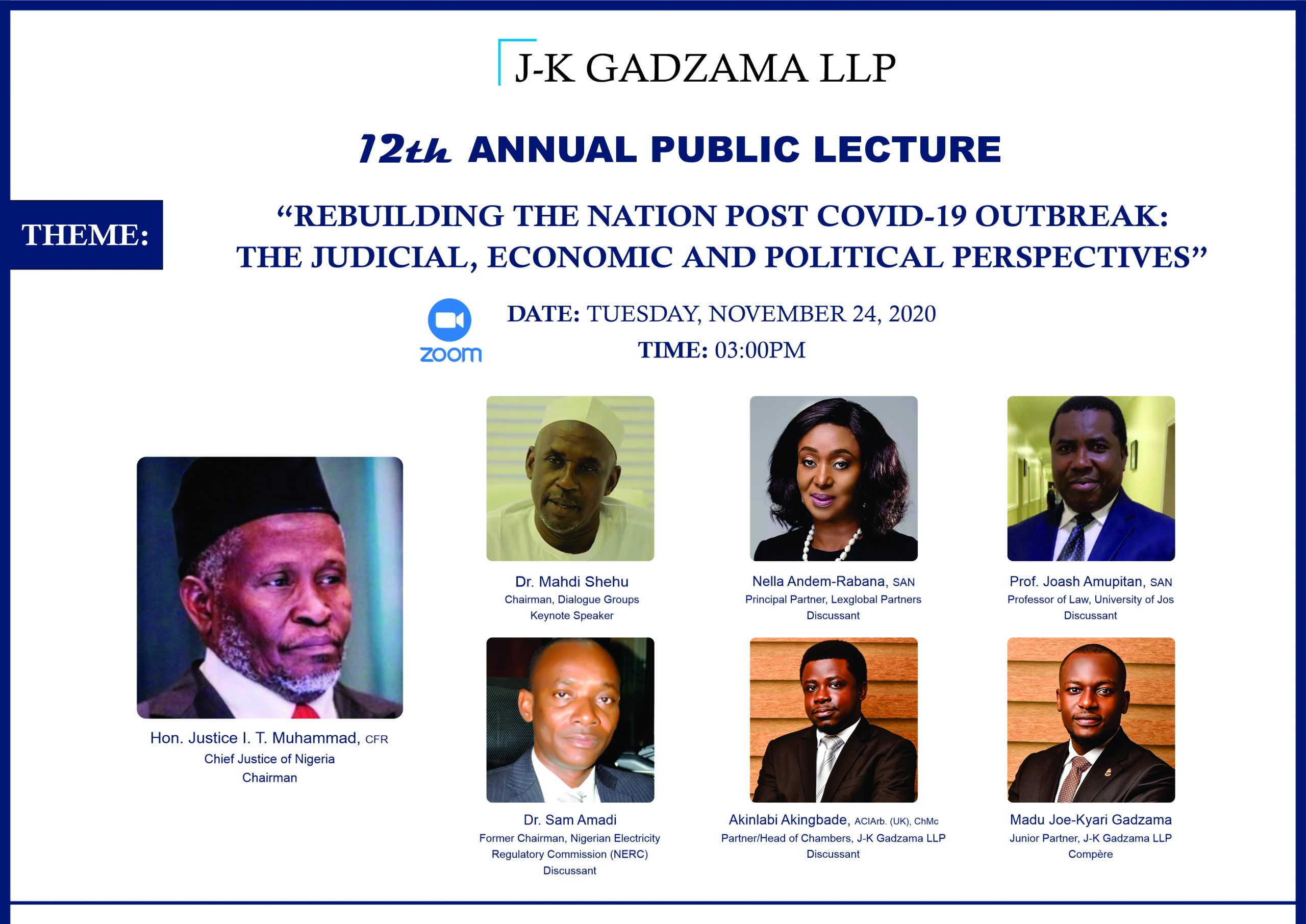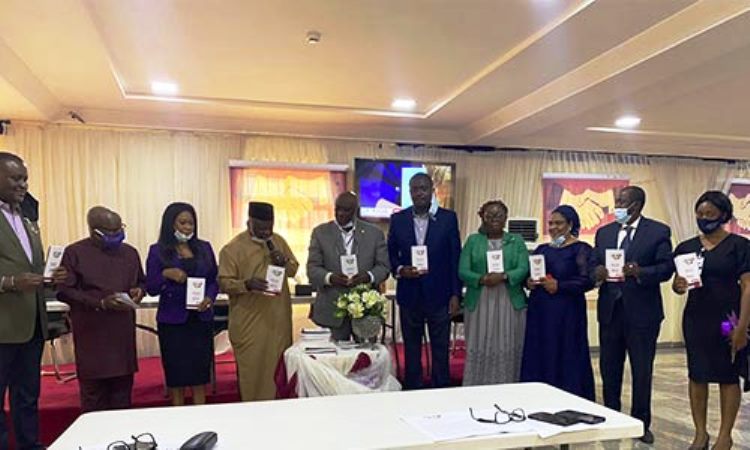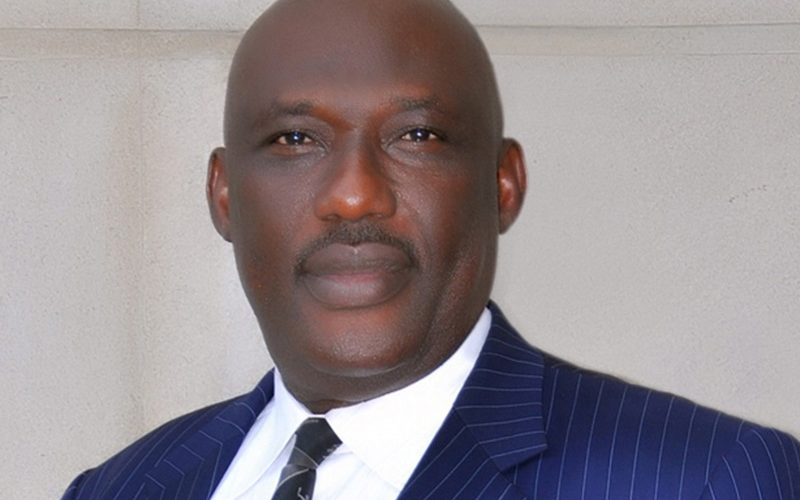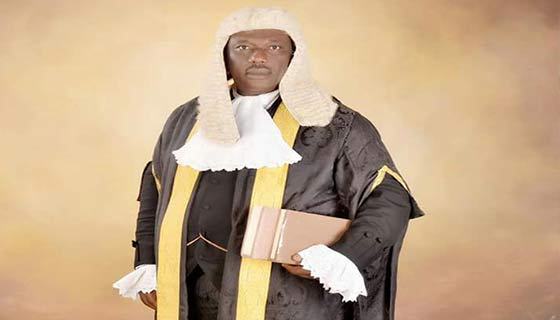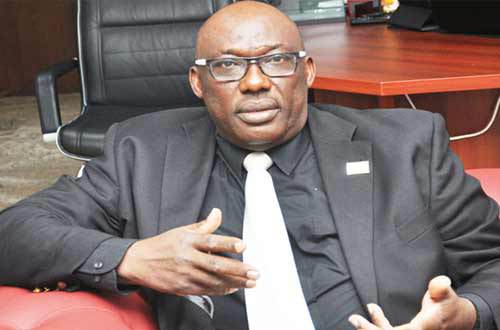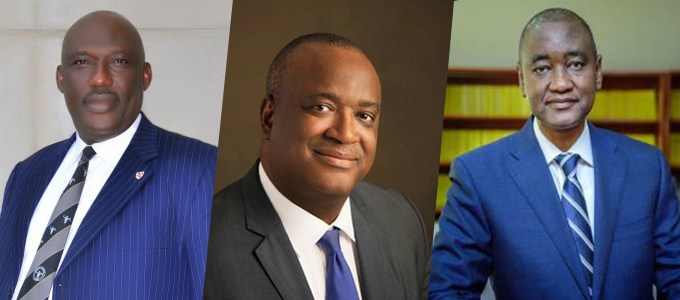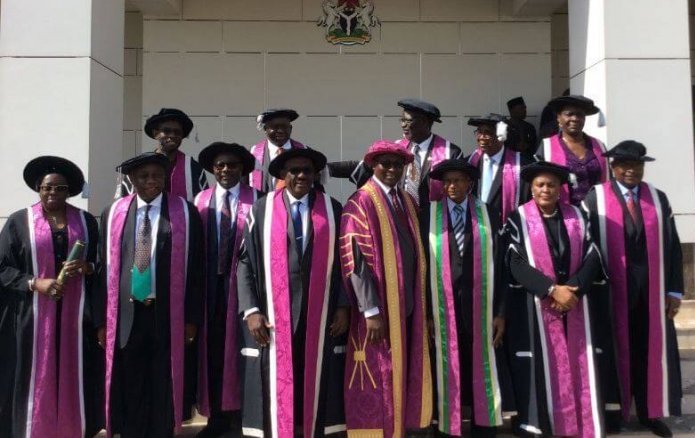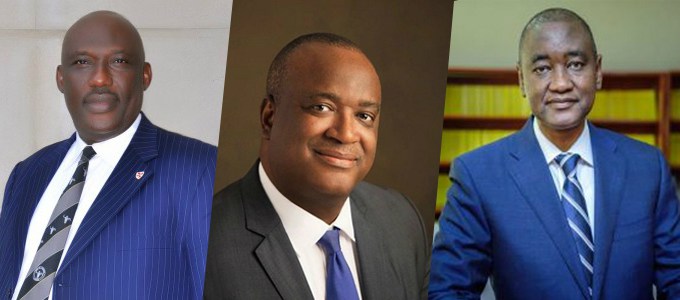1. Introduction
When I received the letter from the Director General, Nigerian Institute of Advanced Legal Studies (NIALS) inviting me to deliver the 2018 Fellows’ Lecture, a myriad of questions began to flood my mind: Why Corruption? Why not Insecurity or Elections, or Democracy, or Good Governance, or the Role of Judges, or that of the Military, or Police, or Customs, or the Legislature or Executive, etc? Why me? Is it because as the Guest Lecturer at the NIALS’ State of the Legal Profession Lecture held on August 6th, 2013 the organisers were happy with my presentation? Or is it because I am considered incorruptible? Could it be that I am considered equally corrupt and I should be speaking from my past corrupt experiences? Or could it be because I am a friend of the indefatigable and ever amiable Director General of the Nigerian Institute of Advanced Legal Studies, Prof. Adedeji Adekunle, SAN? These rhetorical questions are endless and the answers thereto could be anyone’s guess.
There is no doubt that corruption has become a burden in Nigeria, and is to be blamed for the current regrettable position of the Nigerian state. Like a cankerworm or even a killer virus, it has eaten deep and permeated the very organ and life-blood of the nation to a near state of being comatose. The High Court of the Federal Capital Territory, Abuja just recently convicted two former Governors on corruption allegations. The first being the former Governor of Taraba State, Jolly Nyame, who was, on the 30th of May, 2018, found guilty and sentenced to 14 years imprisonment without an option of fine for misappropriating State funds, while he served as Governor from 1999 to 2007 . The second is the former Governor of Plateau State, Senator Joshua Dariye who was accused of diverting N1.126bn from Plateau Government’s Ecological Funds and on the 12th June, 2018, he was found guilty and sentenced to 14 years imprisonment without an option of fine.
The ‘2018 Investment Climate Statements’ published by the US Department of State’s Bureau of Economic and Business blamed corruption, as one of the hindrances to doing business in Nigeria. The report stated thus:
“Nigeria’s full market potential remains unrealised because of significant impediments such as pervasive corruption,”
Before I proceed, let me borrow the words of the iconic figure, Lord Bacon:
“I hold every man a debtor to his profession; from the [sic] which as men of course, do seek to receive countenance and profit; so ought they of duty to endeavour themselves by way of amends to be a help and ornament thereunto”.
Members of the Bar are critical to the well being of the nation and therefore held in high esteem. They owe the profession a serious and uncompromising duty to keep it hallowed and respected. There is a growing perception that members of the Bar, as well as Judges are using the law to suppress the truth while aiding corrupt politicians. This perception is unhealthy and toxic to the legal profession and the nation at large and must be addressed in a timely and expeditious manner.
Lawyers owe a duty to the nation and the society to ensure that corruption, criminality and all forms of impunity are fought conscientiously and resolutely, and eradicated in all facets of our national life.
2. Conceptual Clarification of Key Phraseologies
For the purpose of better assimilation, it is imperative to clarify two key terms used in this paper to wit:
(a) The Bar (Legal Practitioners)
The question of who is a legal practitioner is provided for by statutes and has also gained judicial
imprimatur in a couple of decided cases. The Legal Practitioners Act 1975 provides thus:
“Subject to the provision of this Act, a person shall be entitled to practice as a barrister and a solicitor if and only if his name is on the roll” .
The Legal Practitioners Act also provides as follows:
“ … A Legal Practitioner in Nigeria is a person entitled in accordance with the provision of this Act to practice as barrister or as a barrister and solicitor either generally or for the purpose of any particular office or proceedings.”
Under the Legal Practitioners Act only registered legal practitioners or members of the Bar, those who have paid their practicing fees, have the right of audience in any court of law or Tribunal in Nigeria. In the case of Olusemo v COP the court held thus:
“A legal practitioner is by virtue of section 2(3) of the Legal Practitioners Act, Cap 207 LFN 1990 as amended entitled to and has the right to appear and have audience in any court of law or tribunal in Nigeria.”
By reason of the above therefore, the Bar refers to members of the learned profession, irrespective of where they work but excluding the Judges.
(b) Corruption
Corruption has been defined by various persons and from different perspectives depending on their focus. One of the most popular definitions of corruption was given by Leslie Palmier. According to this definition, corruption is seen as the use of public office for private advantage. A more embracing definition of corruption is given by Macrae J., who defined it thus:
“An arrangement that involves an exchange between two parties which has an influence on the allocation of resources either immediately or in the future and involve the use or abuse of public or collective responsibility for private ends.”
Some other authors defined corruption as the misuse of public power for private benefits such as bribing public officials, kickbacks on public procurement or embezzlement of public funds. The interpretation section of the Corrupt Practices and Other Related Offences Act, describes corruption thus; “corruption includes bribing, fraud and other related offences”.
In the words of Mallam Nuhu Ribadu, we can simply say that it is an evil that is very much recognisable. When you see corruption, you know it; when you are engaged in corruption, you also know it.
The African Union Convention on Preventing and Combating Corruption defines corruption as the acts and practices including related offences prescribed in the Convention. The offences covered by the Convention include bribery (domestic or foreign), diversion of property by public officials, illicit enrichment, money laundering and concealment of property.
The International Monetary Fund defines corruption as “abuse of authority or trust for private benefit: and is a temptation indulged in not only by public officials but also by those in positions of trust or authority in private enterprises or non-profit organizations.”
According to Transparency International, corruption generally speaking is defined as “the abuse of entrusted power for private gain”. It further defines corruption as involving behaviour on the part of officials in the public sector, whether politicians or civil servants, where they improperly and unlawfully enrich themselves or those close to them, by the misuse of the public power entrusted to them.
Permit me at this juncture to also proffer my own definition of corruption. You may wish to call it J-K Gadzama’s definition. To my mind, corruption is simply the abuse of position, power, privilege or principles for personal purposes; whether monetary or otherwise (I call it the 6P’s). The scope of corruption is therefore elastic and includes: use of one’s office or position for pecuniary advantages, gratification, and insincerity in advice with the aim of gaining advantage, etc.
Daniel Kaufmann, from the World Bank, extends the concept of corruption to include ‘legal corruption’ in which power is abused within the confines of the law—as those with power often have the ability to make laws for their protection. The effect of corruption in infrastructure is to increase costs and construction time, lower the quality and decrease the benefit.
Thus, corruption can be defined, described or explained as it means different things to different people.
Since corruption is the crux of this lecture I would like to briefly highlight the various dimensions, types, forms and shades of corruption.
3. Types of Corruption
Professor Taiwo Osipitan SAN has identified three classes of corruption namely:
(a) Collusive corruption which involves planned cooperation of the giver and receiver.
(b) Extortionary corruption which involves forced extraction of bribes and other favours from vulnerable victims by those in authority and,
(c) Anticipatory corruption which occurs when bribe or gift is offered in anticipation of favour from the recipient of the gift to the giver of the gift. Corruption is therefore multi-faceted affecting all spheres of our socio-economic life and politics. The Legislature, the Executive, the Judiciary, the private sector and the civil society are all involved in corruption. Thus an all embracing and universally acceptable definition is not possible.
Other scales of corruption have been highlighted to include:
a) Petty Corruption
Petty corruption occurs at a smaller scale and takes place at the implementation end of public services when public officials and members of the public interact. For example, petty corruption occurs in many small places such as registration offices, police stations, state licensing boards, and other private and government sectors.
b) Grand Corruption
Grand corruption is defined as corruption occurring at the highest levels of government in a way that requires significant subversion of the political, legal and economic systems. Such corruption is commonly found in countries with authoritarian or dictatorial governments but also in those without adequate policing of corruption.
c) Systemic Corruption
Systemic corruption (or endemic corruption) is corruption which is primarily due to the weaknesses of an organization or process. It can be contrasted with individual officials or agents who act corruptly within the system. In this context, corruption does not belong to the public sector alone; it also extends to the private sector as it is systemic.
d) Tied Aid
Tied aid is foreign aid that must be spent in the country providing the aid (the donor country) or in a group of selected countries. A developed country will provide a bilateral loan or grant to a developing country, but mandate that the money be spent on goods or services produced in the selected country.
e) Institutional Corruption
Institutional corruption is manifest when a systemic and strategic influence which is legal, or even currently ethical, that undermines the institution’s effectiveness by diverting it from its purpose or weakening its ability to achieve its purpose, including, to the extent relevant to its weakening, either the public’s trust in that institution or the institution’s inherent trustworthiness. Institutional corruption is essentially official corruption. This is because it is the corruption committed by officials of government institutions like ministries, departments and agencies.
It is a fact that corruption has become notorious in Nigeria to the extent that even the least ranking officer in a public office can hold a person to ransom in order to achieve a corrupt end. Also, corruption has become institutionalized to the extent that non-receipted phony fees are demanded and collected from prospective applicants, by several government agencies. This troubling scenario has created a vast field of partakers and victims of corrupt practices, high and low alike.
4. The Role Of The Bar In The Fight Against Corruption
Before delving into the critical role that lawyers as members of the Bar play in the anti-corruption fight, it is pertinent to note that the obligations and responsibilities of lawyers when dealing with corrupt practices are weighty. The traditional role of lawyers is that of defenders of justice and representatives of individuals before the law. Consequently, the fall-out from lawyers being involved in corrupt practices can be far greater than that of other professions, and rightly so.
By our cherished training, members of the Bar are best placed to be vanguards of advocacy for law reform and protection of individual rights, good governance, consumer protection, economic development, social welfare, the fight against corruption, etc. Where then does the Bar stand in the fight against corruption?
(a) Members of the Bar as Leaders of the Anti-Corruption Crusade
Leadership is about inspiring confidence and influencing others in the right direction and towards achieving a goal. Lawyers are privileged to have been learned in several areas of knowledge and are deemed to “know something about everything and everything about something”. Lawyers hold the key to various legal issues. As members of the Bar, we are better positioned to lead others in ensuring that Nigeria is not drowned or choked by corruption. In the words of President Muhammadu Buhari, GCFR, “if we don’t kill corruption, corruption will kill us”.
(b) Members of the Bar as Researchers and Law Teachers
Lawyers are custodians of the law. Even where they do not know the law, they should know where to find the law. Anti-corruption laws in Nigeria are currently at their nascent stage. Statutory and case laws as well as rules are emerging. The lawyer is therefore expected to be conversant with these laws. The lawyer plays the role of a teacher and researcher. Precisely, the lawyers who are in academia, particularly criminal law teachers, researchers and those in places like the Nigerian Institute of Advanced Legal Studies, are expected to extend their role of teaching and researching the law to the emerging area of the law of corruption. Effective research is an essential skill of a lawyer whether as a student or in practice. The ability to perform legal research is one of the basic lawyering skills. I therefore urge the academic to take this challenge very seriously.
(c) Members of the Bar as Policy Makers and Administrators
At first sight, it would seem that legal practitioners may not be directly involved in policy conception, formulation and policy making as they are seen not to be the traditional roles of lawyers. However, in every facet of life, lawyers are either directly involved with or form part of a team in government policy formulation. My admonition is where legal practitioners are involved in policy making on corruption, it is important that they bring their legal knowledge to bear on such policy. For instance, it may not be enough to make policy to fight corruption, it may also be necessary to understand the underlying factors in the crime of corruption. Thus, a legal practitioner with knowledge in the relevant field like criminology, psychology, sociological jurisprudence, etc, may guide the policy-making team on the issues to be considered before making such policies.
(d) Members of the Bar as Advisers
On so many occasions, members of the Bar are appointed to serve as advisers to politicians, Governments, individuals, companies and other entities. Where their advisory role relates to legal issues on corruption, lawyers must be guided by the law, ethics, knowledge, wisdom and diligence.
(e) Members of the Bar as Prosecuting Counsel
In the light of judicial decisions in cases like FRN v. Osahon, Olusemo v COP (supra), and the provisions of the Administration of Criminal Justice Act, 2015, the work of prosecuting criminal cases is gradually being left entirely for qualified lawyers. The work of prosecuting criminals is one of the roles that lawyers play, particularly those at the Federal Ministry of Justice, EFCC, ICPC, and the legal department of the Nigeria Police Force. Where a lawyer finds himself as a prosecutor, most especially in corruption cases, he has a fundamental role of meticulously studying and scrutinising case files before giving advice, drafting a charge, filing the case, commencing trial and diligently prosecuting same. The power of the prosecutor is clearly provided for in sections 174 and 211 of the 1999 Constitution. These provisions are reinforced by our laws on Criminal procedure such as the Administration of Criminal Justice Act 2015 and also decided cases. Prosecuting counsel must not be a persecutor; he must also not soil his hands by compromising his case.
(f) Members of the Bar as Defence Counsel in Corruption Cases
It is usually the members of the Bar that serve as defence counsel to people accused or alleged to have committed criminal offences, including corruption related offences. The defence counsel in corruption cases must adhere to Rules 14, 15 and 32, of the Rules of Professional Conduct for Legal Practitioners in Nigeria. These Rules emphasise the need for devotion to duty, strong respect for and compliance with all relevant legal principles and laws, and fair play and honourable means of achieving his aim of giving the best service to his client.
(g) Members of the Bar as Judges
We all know that judges are appointed from the members of the Bar. Indeed, it has been said that the bench will forever reflect the Bar as it is the source from which it is constantly replenished.
The Commonwealth Heads of Government at its meeting in Abuja, Nigeria, in 2003 agreed and endorsed certain principles for governing three branches of government in the Commonwealth States. These are contained in a document titled: Commonwealth (Latimer House) Principles on the Accountability of and the Relation between the three branches of government. The Commonwealth affirms that: An independent, impartial, honest and competent judiciary is integral to upholding the rule of law, engendering public confidence and dispensing justice. The function of the judiciary is to interpret and apply national constitutions and legislation, consistent with international human rights conventions and international law, to the extent permitted by the domestic law of each Commonwealth country.
(h) Members of the Bar as Foot Soldiers and Protectors of the Rule of Law
It has been suggested that the fight against corruption will not be won unless the ‘rule of law’ works. Until the rule of law (including the anti-corruption law) is enforced equally against everyone, the fight against corruption will not see the light of day. Lawyers are the forerunners and foot soldiers of safeguarding the law. Without the rule of law, the ‘rule of force’ or the ‘rule of man’ will be enthroned and justice will be determined by how much power or influence a man holds or how much money he is willing to pay.
To uphold the rule of law we need to have credible lawyers (including lawmakers and law enforcers) who are to take the lead. In the fight against corruption, lawyers are important instruments because they are the key actors in our legal system, which is apparently not functioning properly. It is the lawyers who can contribute greatly to liberating our nation from corruption. There will be no rule of law without credible lawyers; lawyers of course who are expected righteous and have a strong sense of justice. The absence of credible lawyers to carry out the mission to uphold the rule of law presents a disincentive to corruption eradication.
All the government’s efforts in the battle against corruption will fail if the majority of lawyers take an opposing stance or act as onlookers.
(i) Lawyers as the Vanguard in the Fight Against Corruption
In all the efforts targeted at tackling corruption over the years in our country, lawyers have played essential and significant roles as advisers, public prosecutors, judicial officers on the Bench or as private counsel. Lawyers are apparently everywhere and in all places. Nothing is achieved or done without involving lawyers and in reality, nothing can be done in the anti-corruption war without the involvement of lawyers. Owing to the enormous task on lawyers, it therefore behoves on the lawyers to be determined, honest, patriotic and fearless. Younger members of the Bar can take a cue from those that have gone ahead of us like the late Chief Rotimi Williams, SAN, Chief Gani Fawenhimi, SAN, etc.
5. The Problem With Corruption: The Bar Caught In The Web
The law is a noble profession and lawyers are naturally entrusted with nobility. This is evident in almost every aspect of the life of a lawyer, including the nature and colour of the lawyer’s attire which signifies sobriety and moderation. The lawyer’s gown has no pocket so that the gentle and noble man is not corrupted. The only pocket-like arrangement is found at the back of the lawyer’s gown. Historically, we are told that in those days, lawyers were not to be seen to collect money and if any person had any reason to give his lawyer money, the person had to do it quietly by putting the coins in the small pocket at the back of the gown without the lawyer’s knowledge. As noble men, lawyers are to be respected and never be seen where corruption is mentioned. However, the story today seems different. The pertinent question therefore is, “where do lawyers fit in the fight against corruption?”
By training and practice, lawyers are very essential in every part of our system, from politics to business. There are no business transactions that are done without involvement of lawyers. Among all the professional groups, only lawyers are in charge of an entire arm of government; the Judiciary. The Judiciary, consisting entirely of the members of the Bar, by its strategic place in the power arrangement in a democratic setting like ours, has the capacity to bring corruption to a halt and, a fortiori, solve myriads of our national problems.
All things being equal, one is not oblivious of the major functions of a lawyer, particularly those in private practice, in the administration of justice chain vis-à-vis the right of the suspect in criminal prosecution to legal representation. This function is codified in our Constitution, Statutes and Laws. Usually, the lawyer’s focus and concern is geared towards his client’s interest and satisfaction. The challenge of the private practitioner, therefore, is that of striking a balance between what is in the client’s best interest and what is in the public interest, particularly given the current problem posed by corruption in our country.
The English legal luminary, Lord Brougham in defending Queen Caroline at her trial in the House of Lords in 1821 captured it aptly when he said:
“An advocate in the discharge of his duty knows but one person in all the world, and that person is his client. To save that client by all means and expedients, and at all hazards and costs to other persons, and, among them, to himself, is his first and only duty; and in performing this duty he must not regard the alarm, the torments, the destruction which he may bring upon others. Separating the duty of a patriot from that of an advocate, he must go on reckless of consequences, though it should be in his unhappy fate to involve his country in confusion.”
Indeed, suspects have the right to representation and a lawyer is legally empowered to offer such services. However, that must be done within the ambit of law and morality. That is why there is a code of ethics. Legal representation should not be seen as an avenue to win a case by all means. A situation where a course of justice is perverted by all manner of antics is costly to the society and the profession. A lawyer serving as a conduit of desecrating the Judiciary by bribing judges and judicial officers is a disgrace to this noble profession.
The international community had long recognised the critical and essential role of lawyers in the anti-corruption fight. This necessitated gatekeepers’ role given to the lawyers. In 1990, the Financial Action Task Force (FATF), a body set up by the G8 countries, adopted a set of forty recommendations on money laundering. In 2001, those recommendations were reviewed and presented in the May 30, 2002 Consultation Paper known as the Gatekeeper Initiative. The Initiative proposed that some professionals, including lawyers, should act as ‘gatekeepers’ to the international financial and business markets by disclosing client breaches of rules, regardless of the fact that such information was obtained in confidence and not mentioned to the affected clients.
Contained in a 2003 ABA paper, the FATF recommendations could be summarized as: Extending certain anti-money laundering measures to lawyers, such as increased regulation and supervision of the profession; increased due diligence requirements on clients, new or expanded internal compliance training and record keeping requirements for lawyers and law firms; and, under certain circumstances, “suspicious transaction reporting” (“STR”) requirements that require lawyers to report to a government enforcement agency or a self-regulatory organization (“SRO”) information that triggers a “suspicion” of money laundering relating to a client activity.
These FATF recommendations were opposed by the Bar Associations in many countries. Nevertheless, with continuous dialogue between FATF and the Bar Associations across the world many Bar Associations have implemented stringent internal control measures in order to cooperate with the international community while some nations adopted statutory measures.
In Nigeria, this led to the enactment of the Money Laundering (Prohibition) Act 2011 and the Prevention of Terrorism Act (PTA) 2011/2013, and the establishment of the Special Control Unit Against Money Laundering (SCUML) created to monitor, supervise and regulate the activities of Designated Non-Financial Institutions (DNFIs). Section 25 of the Money Laundering (Prohibition) Act defines DNFIs as:
“dealers in jewellery, cars and luxury goods, precious stones and metals, real estate, estate developers, estate surveyors and valuers, estate agents, chartered accountants, audit firms, tax consultants, clearing and settlement companies, hotels, casinos, supermarkets, dealers in mechanized farming equipment and machineries, practitioners of mechanized farming, NGOs or such other businesses as the Federal Ministry of Trade and Investment or appropriate regulatory authorities may from time to time designate.”
By virtue of the CBN (Anti Money Laundering and Combating the Financing of Terrorism in Banks and other Financial Institutions in Nigeria) Regulation 2013, legal practitioners were included in the list of DNFIs thus requiring lawyers to register with SCUML though this was resisted by the Nigerian Bar Association.
It may be recalled that in the 1990s, the international community regarded Nigeria as a pariah state not only because of the high level of money laundering but also because of advance fee fraud associated with Nigerians. Hence the country was blacklisted as a non-cooperating country having limited legal and regulatory framework to tackle Money Laundering and Financing of Terrorism by the Financial Action Task Force (FATF). It was for this reason that the Nigerian Financial Intelligence Unit (NFIU) was established in June 2004 by the then President Olusegun Obasanjo, in fulfilment of the requirement by FATF.
The NFIU was initially domiciled at EFCC and draws its powers from the EFCC (Establishment) Act of 2004 and the Money Laundering (Prohibition) Act of 2011. However, on Wednesday, 11th July, 2018, President Muhammadu Buhari, signed the Nigerian Financial Intelligence Unit Bill into law. With the signing of the new Act, NFIU will cease to exist as a department in the Economic and Financial Crimes Commission (EFCC), and will now be domiciled in the Central Bank of Nigeria, but as an autonomous and Independent body.
The law requires lawyers to submit records of financial transactions about their current, existing and prospective clients to the NFIU and to the Special Control Unit Against Money Laundering (SCUML) where such is above the stipulated limit.
It may be recalled that NBA successfully challenged this regulation and SCUML in the case of Registered Trustees of Nigerian Bar Association v. AGF and CBN (FHC/BS/173/2014). The Federal High Court held that sections 5 and 25 of MLA could not be used against legal practitioners because SCUML and FMTI are not juristic persons. The Court upheld the provisions of Rule 19(1) of the Rules of Professional Conduct for Legal Practitioners, made pursuant to the Legal Practitioners Act and section 192 of Evidence Act which preserves confidentiality of Attorney-Client communication.
Furthermore, the Court said sanctions contemplated by SCUML had been covered by extant rules regulating conduct of lawyers thus the MLA regulations were superfluous. The Court refused to accept the submission of the defence that the purpose of the MLA and SCUML was not to monitor legal practitioners but their clients involved in suspicious transactions and that the legislation is a valid derogation from fundamental rights preserved in the Constitution.
The core of the Court’s position is that Federal Ministry of Industry Trade and Investment (FMITI) and Special Control Unit on Money Laundering (SCUML) are not juristic persons, however, sections 5 and 37 of the Nigerian Financial Intelligence Bill 2015 passed 2nd June 2015 by the National Assembly, now signed into law by Mr. President, obliges lawyers and other DNFI to report suspicious transactions to the newly established NFIU.
Notwithstanding NBA’s successful challenge of the SCUML’s case, it is my humble opinion that lawyers cannot run away from the professional obligation placed on them to cooperate with government’s anti-corruption and money laundering laws. Rule 15(2) (a) of the Rules of Professional Conduct for lawyers provides:
“In his representation of his client, a lawyer shall – keep strictly within the law notwithstanding any contrary instruction by his client and, if the client insists on a breach of the law, the lawyer shall withdraw his service”
Here is my word of caution, a caveat if you will; if we, as a profession, fail to observe and enforce ethical standards and rules of professional conduct, our profession will gradually decline until it perhaps becomes irrelevant. Furthermore, other professional bodies or touts will gradually infiltrate and take over some of our vital functions thereby diminishing economic opportunities for our members. This is true of any other profession.
The foregoing is obvious in the apparent loss of respect for the Bar in recent times. Touts and taxi drivers now use NBA stickers and even lawyers’ attires. There is lack of respect for Nigerian lawyers at various embassies and in different countries, largely attributable to corruption related practices.
In the recent past it was not so. A judge of the FCT High Court once shared the story of his relations with us in an open court. He said his relation; a member of the Bar travelled to the UK with other top government officials and highly placed politicians. When they landed in the United Kingdom, as usual they were asked to present their travel documents. When the lawyer presented his, on seeing it, they simply asked him “are you a lawyer?” He responded in the affirmative and immediately they said he should proceed without even searching or asking him further questions. However, it was not the case with other top ranking government and political officials. They were scrutinised and thoroughly searched. This gives a vivid picture of the respect accorded members of the profession in the recent past. But what is the position today? We can all give answer to that. What then is the expectation from members of the Bar regarding the fight against corruption?
6. Expectations From Members Of The Bar
It must be noted that law is not only a noble profession but also a regimented one. It is regimented in the sense that it is strictly guided by certain rules which regulate the everyday activities of the lawyer. Failure to comply with these rules attracts sanctions. This is the reason we have entities like the Legal Practitioners Disciplinary Committee and other bodies regulating the legal profession. The rules of professional conduct have ample provision to ensure that members of the Bar are corruption-free and also to ensure that they carry out their professional calling with sanity and in accordance with the expectation of the society at large. What then are the expectations from members of the bar in line with the Rules of Professional Conduct (RPC)?
Playing by the Rules
It must be pointed out here that lawyers, like all citizens of Nigeria, are bound by the law, most especially the Constitution as the grundnorm. The 1999 Constitution (as amended) S.15(5) provides:
“(5) The State shall abolish all corrupt practices and abuse of power.”
While S. 24 provides:
“It shall be the duty of every citizen to –
(a) abide by this Constitution, respect its ideals and its institutions, the National Flag, the National Anthem, the National Pledge, and legitimate authorities;
(b) help to enhance the power, prestige and good name of Nigeria, defend Nigeria and render such national service as may be required;
(c) respect the dignity of other citizens and the rights and legitimate interests of others and live in unity and harmony and in the spirit of common brotherhood;
(d) make positive and useful contribution to the advancement, progress and well-being of the community where he resides;
(e) render assistance to appropriate and lawful agencies in the maintenance of law and order; and
(f) declare his income honestly to appropriate and lawful agencies and pay his tax promptly.”
Consequently, the legal practitioner, like every citizen, must adhere to the provisions of the Constitution. However, it must be noted that one unique feature of the legal profession is that it is well regulated not only by legislation, but also by Rules of Professional Conduct. In this respect, one of the subsidiary legislation to the Legal Practitioners Act is the Rules of Professional Conduct for Legal Practitioners. The current rules were made on 2nd January 2007 by the then Attorney-General of the Federation and Minister of Justice/ Chairman General Council of the Bar. This was made pursuant to section 12(4) of Legal Practitioners Act, 2004.
The Rules contain Fifty-Seven (57) Rules structured into seven major areas of the practitioners’ roles. The Rules make adequate provisions to guide Legal Practitioners in their practice without falling prey to the forces of corruption and other illegalities. For the sake of time and space, I will just consider a few of these Rules to illustrate this point. Rules 1, 14, 15, 16, 30, 31 and 37 are particularly attractive for our purposes. These rules border on the following:
General Responsibility of a Lawyer
A lawyer shall uphold and observe the rule of law, promote and foster the cause of justice,
maintain a high standard of professional conduct, and shall not engage in any conduct which is
unbecoming of a legal practitioner.
Dedication and Devotion to the Cause of the Client
It is the duty of a lawyer to devote his attention, energy and expertise to the service of his client and, subject to any rule of law, to act in a manner consistent with the best interest of the client.
Representing Client within the Bounds of the Law
In his representation of a client, a lawyer may refuse to aid or participate in conduct that he
believes to be unlawful even though there is some support for an argument that the conduct is
legal. In his representation of his client, a lawyer shall:
(a) keep strictly within the law notwithstanding any contrary instruction by his client and, if the client insists on a breach of the law, the lawyer shall withdraw his service;
(b) use his best endeavours to restrain and prevent his client from committing misconduct or breach of the law with particular reference to judicial officers, witnesses and litigants and if the client persists in his action or conduct, the lawyer shall terminate their relations.
Representing the Client Competently
A lawyer shall not –
(a) handle a legal matter which he knows or ought to know that he is not competent to handle,
(b) without associating with him a lawyer who is competent to handle it, unless the client objects;
(c) handle a legal matter without adequate preparation;
(d) neglect a legal matter entrusted to him; or
(e) attempt to exonerate himself from or limit the liability of his client for his personal malpractice or professional misconduct.
Lawyer as Officer of Court
A lawyer is an officer of the Court and accordingly, he shall not do any act or conduct himself in any manner that may obstruct, delay or adversely affect the administration of justice.
Duty of Lawyers to Court and Conduct in Court
A lawyer shall always treat the Court with respect, dignity and honour. Where the lawyer has a proper ground for complaint against a judicial officer, he shall make his complaint to the appropriate authorities. A lawyer who fails to comply with any undertaking given by him either personally or on behalf of his client to a court is prima facie guilty of professional misconduct. Except where the opposing lawyer fails or refuses to attend and the Judge is advised of the circumstances, a lawyer shall not discuss a pending case with a Judge trying the case unless the opposing lawyer is present. Except provided by a rule or order of court, a lawyer shall not deliver to the Judge, any letter, memorandum, brief or other written communication, without concurrently
delivering a copy to the opposing lawyer.
Employment in Criminal Cases
For a member of the Bar who is employed in, or briefed to handle criminal cases particularly when it involves handling corruption cases Rule 37 becomes apposite, it says:
“(1) Where a lawyer undertakes the defence of a person accused of a crime, he shall exert himself, by all fair and honourable means, to put before the Court all matters that are necessary in the interest of justice, but he shall not stand bail for a person for whom he or a person in his law firm is appearing.
(2) Where the lawyer accepts a brief for the defence in a murder trial, he shall be deemed to have given a solemn undertaking, subject to any sufficient unforeseen circumstances, that he will personally conduct the defence provided his fee is paid.
(3) Where an accused person discloses facts which clearly and credibly show his guilt, the lawyer shall not present any evidence inconsistent with those facts and shall not offer any testimony which he knows to be false.
(4) The primary duty of a lawyer engaged in public prosecution is not to convict but to see that justice is done.
(5) A public prosecutor shall not institute or cause to be instituted a criminal charge if he knows or ought reasonably to know that the charge is not supported by the probable evidence.
(6) A lawyer engaged in public prosecution shall not suppress facts or secret witnesses capable of establishing the innocence of the accused person, but he may make timely disclosure to the lawyer for the defendant, or to the defendant if he has no counsel, of the existence of evidence known to the prosecution or other government lawyer that tends to negate the guilt of the accused, mitigate the degree of the offence or reduce the punishment.”
There are divergent opinions regarding equality of application and enforcement of the rules against all lawyers in Nigeria. Justice Salami once lamented that:
“I wish the Nigerian Bar Association would have the will, ability and capacity to implement the recommendations of the Okpoko Committee that carried out NBA’s independent investigation into the Sokoto Case which led to my travails… Unfortunately, NBA which had a good report in its hands could not impose sanctions on members of your Bar that were indicted therein (probably because ‘prominent’ senior lawyers were involved)… Sometimes (and when it matters) some members of the Bar representing NBA on the NJC hardly stand up for the truth not to talk of speaking the truth,”
This biting comment by Justice Salami reflects the general view of many members of the Bar in respect of managing professional ethics and misbehaviour by lawyers.
The perception is that in so many cases, the NBA could not mete out appropriate sanction to its members because of the involvement of ‘prominent’ and ‘senior’ lawyers. This is a serious issue which requires urgent attention by the NBA. Erring young lawyers are easily penalised, while the seniors who are guilty of more severe offences against the profession are usually honoured and rewarded with membership and chairmanship of important NBA committees.
Recently, the Supreme Court had cause in Dariye v FRN (2015) 6 NWLR (pt.1467) 325, to reprimand a member of the Bar for the delay of corruption cases. Ngwuta JSC said –
It is not the duty of learned counsel to resort to motions aimed principally at delaying or even scuttling the process of determining whether or not there is substance in the charge as laid. In my view, this motion is a disservice to the criminal process and a contemptuous lip service to the fight against corruption. The tactics employed here is only one of the means by which the rich and powerful cripple the criminal process. There are cases where the accused developed some rare illness which acts up just before the date set for their trial. They jet out of the country to attend to their health and the case is adjourned. If the medical facilities are not available locally to meet their medical needs it is only because due to corruption in high places the country cannot build proper medical facilities equipped with state of the art gadgets. There should be no clog in the process of determining whether or not a person accused of a crime is guilty irrespective of his status in society.
The issue here is that the defence counsel was found to be culpable of perpetrating delay on behalf of the Defendant. The Court only reprimanded but did not specifically recommend the counsel for discipline, especially in line with Rule 30 of Rules of Professional Conduct. This would have served as deterrent to others.
It is rather unfortunate, that so many members of the Bar demonstrate this attitude, especially in the prosecution of high profile cases where some suspects are treated as sacred cows or untouchable and encouraged by some members of the Bar to treat the Court with disdain. In Dariye v FRN (supra), Nweze JSC had reason to say thus:
“I have noticed a most worrisome trend in recent times, affluent Nigerians, particularly, the politically-exposed citizens of this great country, imagining that they are above the laws of the land, have perfected some awkward and graceless tactics of delaying their trial when they run into conflict with our penal statutes. The appellant in this appeal falls into this category.”
7. Legal Framework On Anti-Corruption In Nigeria
We have a number of laws and institutions enacted and set up to fight corruption. For the constraint of space and time, I will just highlight the major ones among them. I will basically highlight those that are most relevant to our topic of discussion. The main laws on corruption control include the following:
(a) The 1999 Constitution (As Amended)
The Constitution is the most important law in the country. Section 15(5) of the Constitution provides that the State shall abolish all corrupt practices and abuse of power. In the Fifth Schedule to the Constitution (the Code of Conduct), it prohibits public officers from accepting property or benefits of any kind for him/herself or any other person on account of anything done or omitted to be done by him in the discharge of his duties.
(b) The Economic and Financial Crimes Commission (EFCC) Act
The EFCC Act established the Nigeria’s Anti-graft agency. The Act mandates the EFCC to combat financial and economic crimes and empowers it to prevent, investigate, prosecute and penalise economic and financial crimes. Section 46 of the Act defines “economic crime” as a – nonviolent criminal activity committed with the objectives of earning wealth illegally. Apart from establishing the agency, it has several sections which deal with financial crimes and corruption, and provide penalties for breach of those sections.
(c) The Corrupt Practices & other Related Offences Act
The Act seeks to prohibit and prescribe punishment for corrupt practices and other related offences. It established the Independent Corrupt Practices and Other Related Offences Commission (ICPC) vesting it with the responsibility for investigation and prosecution of offenders thereof. The Act generally prohibits the various perceived acts of corrupt practices arising from interactions or transactions involving public/government officers and the general public or private individuals. The main aim of the Act is prohibition of corrupt practices and bribery; however it also seeks to curb corrupt practices in private business transactions and inter personal relationships among individuals and persons.
(d) Criminal Code/Penal Code
The Criminal Code is applicable in most of the States in Southern Nigeria, and has several sections which deal with corruption and unjust enrichment, specifically by public officials. For instance, Section 98 of the Criminal Code deals with the offence of corruption by defining what it is and prescribing an offence for corruption and its related offences. In the same vein, the Penal Code applies in the Northern States of the country.
(e) Money Laundering (Prohibition) Act
According to the Act, Money laundering, is committed when any person in or outside Nigeria directly or indirectly conceals or disguises the origin of; converts or transfers; removes from the jurisdiction; acquires, uses, retains or takes possession or control of; any fund or property, knowingly or which he/she should reasonably have known that such fund or property is, or forms part of the proceeds of an unlawful act. In a nutshell, it is when an individual intends to legitimise proceeds from criminal activities. The Act prescribes penalties for money laundering related offences.
(f) The Code of Conduct Bureau and Tribunal Act
The Code of Conduct Bureau and Tribunal Act established a bureau charged with the functions of receiving assets declarations by public officers, examining the assets declarations to ensure compliance with the requirements of the Act, taking and retaining custody of such assets declarations, receiving complaints about non-compliance with or breach of the Act and if necessary, refer such complaint to the Code of Conduct Tribunal established by section 20 of the Act.
In addition, the Act contains a code of conduct for serving and retired public officers. Section 10 prohibits a public officer from asking for or accepting any property or benefit of any kind for himself or any other person on account of anything done or omitted to be done by him in the discharge of his duties. Section 7 prohibits some public officers from maintaining or operating a foreign bank account. The Code of Conduct Tribunal is empowered to impose punishment which may include vacation of office, whether elective or nominated office as the case may be; disqualification from holding any public office (whether elective or not) for a period not exceeding ten years; and seizure and forfeiture to the state of any property acquired in abuse or corruption of office. Although the Code of Conduct and Tribunal Act was enacted in 1989, section 153(1) of 1999 Constitution also established the Code of Conduct Bureau as one of the federal executive bodies.
(g) The Public Procurement Act
The Public Procurement Act No. 14 of 2007 (The Act) is another legislation aimed at guarding against corruption in Nigeria. The Act covers all aspects involved in public sector procurement including the procurement of works, goods and services. The Act established the National Council on Public Procurement (The Council) and the Bureau of Public Procurement (The Bureau) as the regulatory authorities responsible for the monitoring and oversight of public procurement, setting standards, harmonizing existing government policies and practices and developing legal framework and capacity for public procurement in Nigeria. The Act thus ensures that procurement is organized and laid down methods and policies strictly followed. Section 53(1) of the Act empowers the Bureau to review and recommend for investigation any matter related to the conduct of procurement process by any Ministry or agency of government, if it considers such investigation desirable so as to detect or prevent the violation of any of the provisions of the Act.
(h) Fiscal Responsibility Act, 2007
In the Explanatory Memorandum to the Act, it is stated clearly that the Act, among other things, establishes the Fiscal Responsibility Commission charged with the responsibility of monitoring and enforcing the provisions of the Act to ensure greater accountability, transparency and prudence in the management of the nation’s resources by the Federal Government, Government-owned corporations or companies and agencies. This is aimed at fighting corruption.
8. International Law And Practices On Corruption
It is important to note few instruments and institutions relevant to the control of corruption globally. I will be very brief for the sake of time and space.
(a) United Nations Convention against Corruption
The United Nations Convention against Corruption (UNCAC) was adopted by the General Assembly on the 31 October 2003 and entered into force on 14 December 2005. It is the first global legally binding instrument in that field which covers public and private, domestic and international corruption. The convention basically rests on four pillars: corruption prevention, law enforcement, international cooperation and asset recovery.
(b) Anti-Corruption Guidance for Bar Associations
The purpose of this document is to encourage bar associations to look at the issue of corruption from two perspectives: (a) to educate lawyers about the risks and threats of corruption in their capacity as legal professionals. This has three elements: i. helping to familiarise legal professionals with international anti-corruption instruments and national anti-corruption legislation, particularly legislation with extra-territorial application; ii. providing information about the circumstances in which lawyers may be at risk from corruption; and iii. providing information about how legal professionals can avoid corruption and the appearance of corruption. (b) providing a positive representation of the legal profession and the bar association as a champion of anti-corruption before local and international forums.
(c) The United Nations Global Compact and its 10th Principle on Corruption
On 24 June 2004, at the UN Global Compact Leaders Summit, the addition of a 10th Principle against corruption was announced. The tenth principle against corruption commits UN Global Compact participants not only to avoid bribery, extortion and other forms of corruption, but also to proactively develop policies and concrete programmes to address corruption internally and within their supply chains. Companies are also challenged to work collectively and join civil society, the United Nations and governments to realise a more transparent global economy.
(d) Anti-Corruption Strategy for the Legal Profession
The International Bar Association (IBA), with support from the Organisation for Economic Co-operation and Development (OECD) and the United Nations Office on Drugs and Crime (UNODC), launched the ‘Anti-Corruption Strategy for the Legal Profession’ project. This global initiative has the objective of raising awareness among legal professionals about existing international anti-corruption instruments and to equip lawyers with the necessary tools and knowledge to identify, address and resolve potential threats to the integrity of the legal profession caused by corruption.
9. Expectations From Lawyers In The Anti-Corruption Fight
These are some basic qualities required of a legal practitioner in his avowed role in the fight
against corruption to wit:
(a) Integrity
Indeed, ethics, ethos are pillars of the Bar. Members of the bar are considered men of integrity and must be ready to abide by the ethical conduct. The greatest asset of any lawyer is his integrity. The loss of integrity by a member of the bar due to corruption is fatal to the profession and nation at large. The Court had cause to disparage the attitude of a counsel for lack of integrity, the court per Olatawura J (as he then was), in the case of State v President Ijesha Divisional Grade A Customary Court; Re: Isaac Oluwaleyimu, stated thus:
“…He has sacrificed principle for perusal gains. He is an officer of the court and his first duty is to the court. Contrary to expectation, he has marred the good names of some officers of the court. Any officer of court who pollutes the foundation of justice is not fit to be an officer of the court…”
(b) Courage
The course of justice, especially in the prosecution of corruption related cases, calls for courageous and fearless men and women who are ready to stand up and fight for their conviction. The legal profession requires men and women who are courageous and will not compromise standard at the slightest opportunity. Sometimes it may appear difficult for law officers, where the interest of politicians stands against the law. Notwithstanding, they must be courageous enough to expose corruption by politicians on becoming aware of such, and discourage its continuance by not being intimidated but by standing firm in a professional manner as their convictions. By virtue of Rule 14(1) of the Rules of Professional Conduct for Legal Practitioners, a legal practitioner should not only courageously prosecute his client’s case, but should vigorously present all proper arguments against any decision and should not be deterred by any fear of judicial displeasure or even punishment.
Law officers should not be seen as zombies that respond positively to every policy of government. Failure to advise against certain government policies, yields to corruption which offends the rule of law. The guiding principle should be “Fiat Justice Et Ruat Coelum”, meaning “justice must be done though the heavens fall.” Therefore, a bold member of the bar is not only an asset to the government but to the court and the nation at large and indispensable in the fight against corruption. The admonition here is that a legal practitioner should always be bold to stand for that which he perceives as right.
(c) Professionalism
Professionalism is the brand of the legal profession. A lawyer is a professional to the core. The legal profession is arguably the most articulate of all professions in Nigeria. The profession is privileged to occupy prominent position in the governance of the country, with its institution, the judiciary, regarded as one of the three major departments of the Constitution.
Members of the profession must therefore be conscious of the enormous responsibility placed on them in the society both in their individual capacity as representatives of contesting parties and corporately to the society at large. Members of the bar must conduct their cases with the highest level of professionalism, etiquette and with the highest level of decorum and discipline. Doing so will not only depict them in a good and admirable light but will also serve as a compass that will guide them in gauging the cases they have been asked to prosecute or defend. Those tasked with the prosecution of corrupt related cases should avoid the filing of spurious charges against accused persons in court. The nasty practice where the state files 300 charges without substance in a case in court in a bid to secure a conviction at all cost is totally condemnable and unprofessional, a practice which does not assist in the fight against corruption. It is more decent to file 1, 2 or 3 charges and secure a conviction rather than 300 charges without substance, resulting in acquittal and discharge.
10. Challenges
The legal profession is generally faced with myriads of challenges ranging from, poor remuneration to poor work environment. It is often said that the salary of a law officer is only as good a remuneration as when he was a junior at the Bar to the extent that when he grows at the Bar, his remuneration translates to mere trifle in comparison with the earnings of his call mates in private legal practice or the in-house counsel of private companies. Yet it is the same law officers that are required to vigorously defend the cause of the state and be at the vanguard of the fight against corruption and the rule of law campaign.
Another potent and critical challenge is that the younger lawyers are often abandoned to fend for themselves as they strive to earn their daily bread and grow in the profession. There are no provisions or policies in place to fend for these younger generations and put them on course, as a result they tend to indulge in all manner of practices, including corrupt ones, all in a bid to survive and also grow in the profession. This poses a serious challenge for the profession.
A critical appraisal of the conditions in government Ministries, Agencies and Parastatals where our law officers work leaves so much to be desired. Most of the offices are either without computers or have dysfunctional or obsolete machines. In some offices, there are no libraries and the ones that have libraries have outmoded books, law reports and law journals. A law officer working under these harsh conditions cannot, in all sincerity, be expected to gallantly fight corruption when his immediate environment in itself is pervaded by corruption. Such a law officer can be easily corrupted and compromised to alter the course of justice with mouthwatering offers of cash or other gift items. All these pose serious challenges both to the profession and the nation at large.
11. Presidential Executive Order No. 6 Of 2018
In an auspicious occasion like this, one can comment on topical legal issues whether of national or international importance. Indeed who is more competent to comment on such issues than a legal practitioner? I will, therefore, like to share my thoughts on the Presidential Executive Order 6 (PEO6). It may be recalled that President Muhammadu Buhari had on July 5, 2018, issued the Presidential Executive Order. The Order made pursuant to the provisions of sections 5 and 15 (5) of the 1999 Constitution, seeks to, among other things; protect the resources of Nigeria from all forms of corruption and abolish all corrupt practices and abuse of power. This Order may be well intentioned by the present administration and I commend the President for that. However, speaking as a lawyer, a critical scrutiny of the Order reveals that there are serious issues for consideration.
However, certain fundamental concerns have been raised by the public regarding the Order which is apposite to mention at this point. These concerns include but are not limited to the following:
a) The timing of the Order seems to be one of the major concerns. The questions people have been asking are why is such an Order coming now that the 2019 general election is approaching? Why did such Order not come up in at least the first two years of the current administration? Conversely, why should the Order not wait until after the 2019 general elections?
b) The PEO 6 provides thus “without prejudice to any laws or existing suits” to “protect from dissipation” the “assets of any Nigeria citizens within the territory of the Federal Republic of Nigeria… known to be a current or former government official” or a politically exposed person, who is or has been “complicit in or has… engaged in corrupt practices.” Some of the concerns border on whether these are not questions that should rather be in the province of the judiciary; and this notwithstanding the fact that the Order is expressed to be without prejudice to ongoing proceedings.
c) There is also some concern regarding what appears to be a selective implementation of the said Order. Critics have wondered aloud why the Order is not being extended to certain persons some under investigation and some with pending cases and whether this is so because they are either members or allies of the ruling party or serving in government. It is noteworthy however that the Government has denied any political bias and justified the Order as necessary in order to expedite trials of individuals that have lingered for more than 10 years.
d) The advent of Executive Orders also raises the constitutional issue of whether or not the Order is a law, and whether the Executive has powers to make laws. To what extent if ever can such Orders modify existing law and does the exercise of it necessarily involve an infringement on the constitutional powers of the legislature.
It must be noted that even in US where the Executive may have borrowed such idea from, such powers to issue Executive Order is clearly provided for in the Constitution and despite such provision, it is being challenged at the moment. In the United States, an executive order is a directive issued by the President of the United States that manages operations of the federal government and such order has the force of law. The legal or constitutional basis for executive orders has multiple sources. Article Two of the Constitution of the United States gives the President broad executive and enforcement authority to use his discretion to determine how to enforce the law or to otherwise manage the resources and staff of the executive branch. The ability to make such orders is also based on express or implied Acts of Congress that delegate to the President some degree of discretionary power.
I am not unaware of the October 11, 2018 judgment of the Federal High Court, presided over by Hon. Justice Ijeoma Ojukwu, in suit FHC/ABJ/CS/740/2018, which in effect held the President, has power to issue an Executive Order, and the subsequent appeal to the Court of Appeal sitting in Abuja. As a result, I have avoided going into details or the merits of the Order. There is no doubt that clear judicial pronouncements on the matter by the courts will clarify some of these concerns and also give the persons directly listed in Schedule 1 of the Order, an opportunity to ventilate their grievance as they have better locus standi to so do than others.
12. Recommendations
Having gone through the hurdle of highlighting some of the challenges bedeviling the profession and the nation, permit me to briefly make some recommendations. In order to succeed in our role as the watchdog of democracy, custodians of the rule of law and major players in the anti-corruption fight the following are my recommendations:
(a) The fight against corruption will not be won until the rule of law works, i.e. the laws (including the anti-corruption laws) are enforced equally against everyone. The rule of law creates a disincentive for the corrupt or crooked people to do what they want. The most fundamental requirement is for us to have credible lawyers (including lawmakers and law enforcers) to take the lead. The rule of law cannot thrive without credible lawyers who have strong sense of justice. The absence of credible lawyers to carry out the tenets of the rule of law presents a further disincentive to corruption eradication.
(b) A clean legal system is imperative to stop corruption. The clean legal system envisages the eradication of corruption within the legal profession however minute. The media and academia can and should equally play a key role in creating a culture of revulsion against corruption in our society. Today, there are too many “corrupt lawyers” and celebrity lawyers, who in appropriately receive too much publicity. At the same time, there has been very low coverage of humble lawyers with excellent sense of professionalism. The media must, therefore, give adequate spotlight to people who have been consistent in obeying the rule of law and committed to implementing zero tolerance against corruption.
(c) We must take an active step in self-cleansing. We as lawyers should shun the attitude of playing ostrich for self-preservation. The NBA must be at the forefront of the current effort to cure the justice sector of the evil of corruption and in this there should be no sacred cows. We must glean from the lives of great personalities, who were lawyers and who have played prominent leadership role to the admiration of the world. Let us look at our Mandela, let’s look at Ghandi, let’s look at Obama, as lawyers they altered the course of history. We all have similar traits in us. Lawyers are trained to be change agents, and we the Nigerian lawyers should not be any different.
(d) Corruption can be successfully fought when all the players and stakeholders in the legal system (including judges, prosecutions, police and advocates) share the same commitment. In addition, the society as a whole should commit itself to fighting corruption.
13. Concluding Remarks
The Bar holds the ace, not the axe in fighting corruption. This is an alternative rephrase of our topic first discussed. A Legal Practitioner is unquestionably a special specie of a professional. The law and the society vest in him much respect. He is the only professional whose profession constitutionally guarantees him a seat in the Council of Ministers. To whom much is given, much is expected and uneasy lies the head that wears the crown.
The main object of this lecture is to highlight the expected role of the members of the Bar, the legal practitioners. I must also admit at this point that the present perception of lawyers in relation to the fight against corruption is far from favourable, as such we must do everything within our means to ensure that this negative perception is erased, by so doing we can leave a befitting legacy for future generations.
I would like to appeal to us as members of the Bar, to always put on the helmet of the rule of law, the breastplate of the rules of professional conduct, the sword of doggedness and courage, and the shield of integrity and honesty by which we can quench the fiery dart of corruption.
Once again, I thank the management of NIALS for giving me this wonderful opportunity to share my thoughts on this extra ordinary topic.
God bless you all for your attention.
Send your Press Release, Events, News Tips, Opinions or Informed Commentary to citylawyermag@gmail.com
Follow us on facebook at City-Lawyer-Magazine
Copyright 2018 CITY LAWYER. All materials available on this Website are protected by copyright, trade mark and other proprietary and intellectual property laws. You may not use any of our intellectual property rights without our express written consent or attribution to www.citylawyermag.com. However, you are permitted to print or save to your individual PC, tablet or storage extracts from this Website for your own personal non-commercial use.
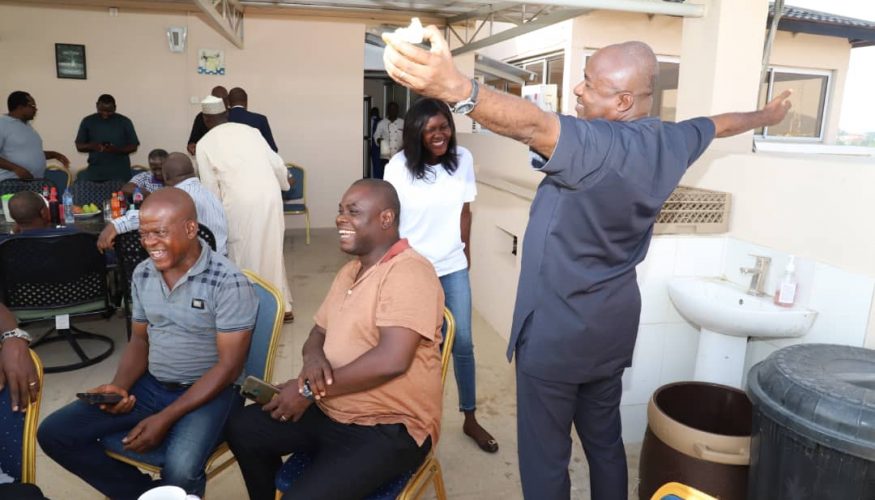
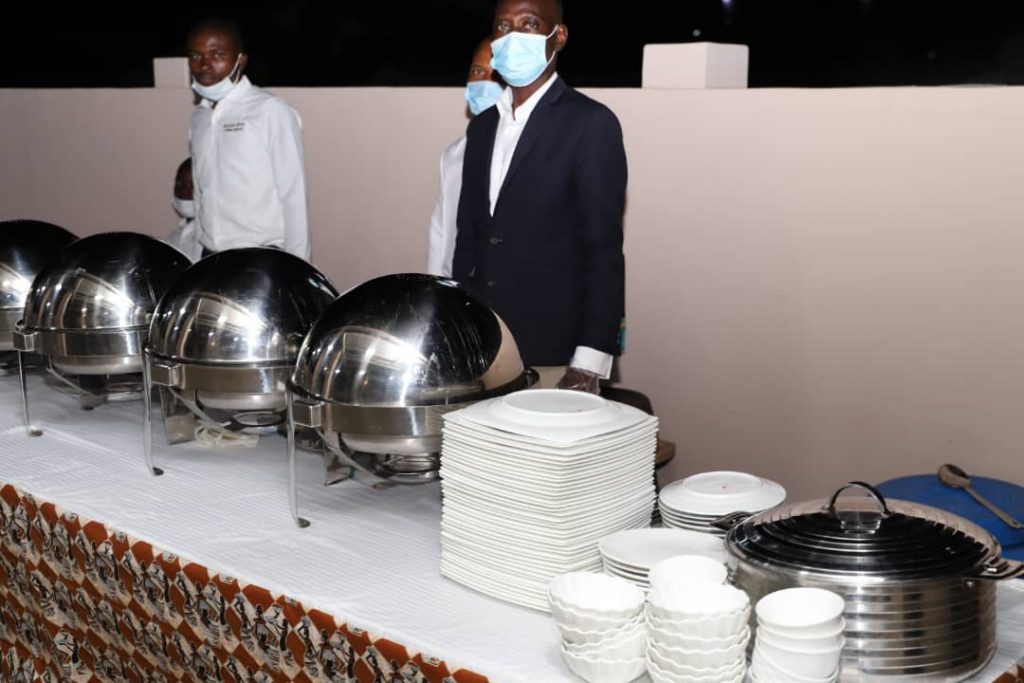
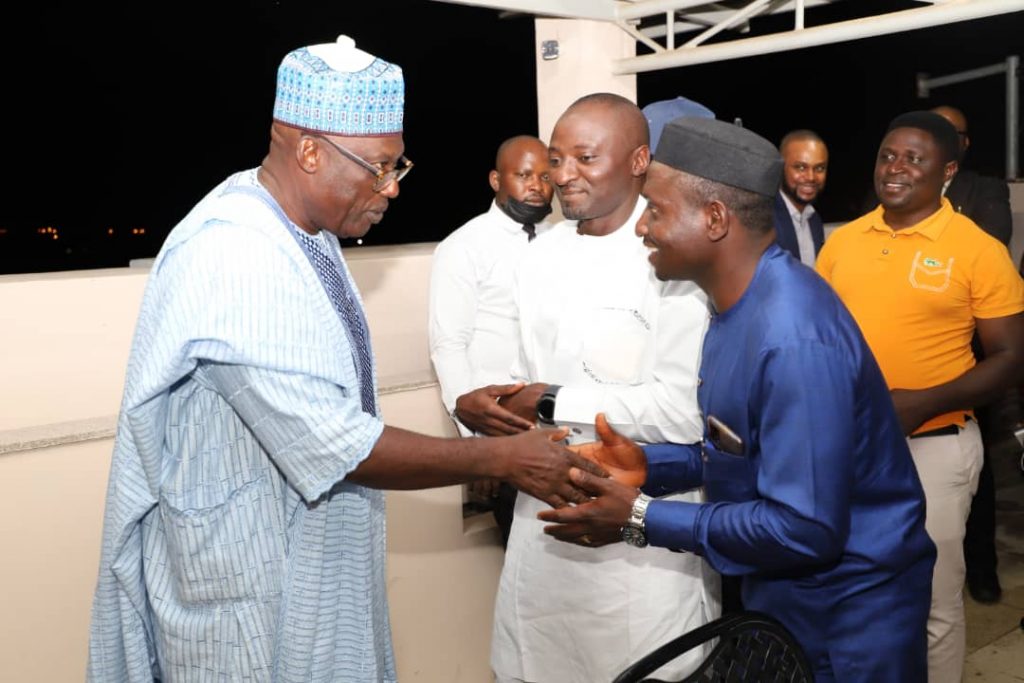
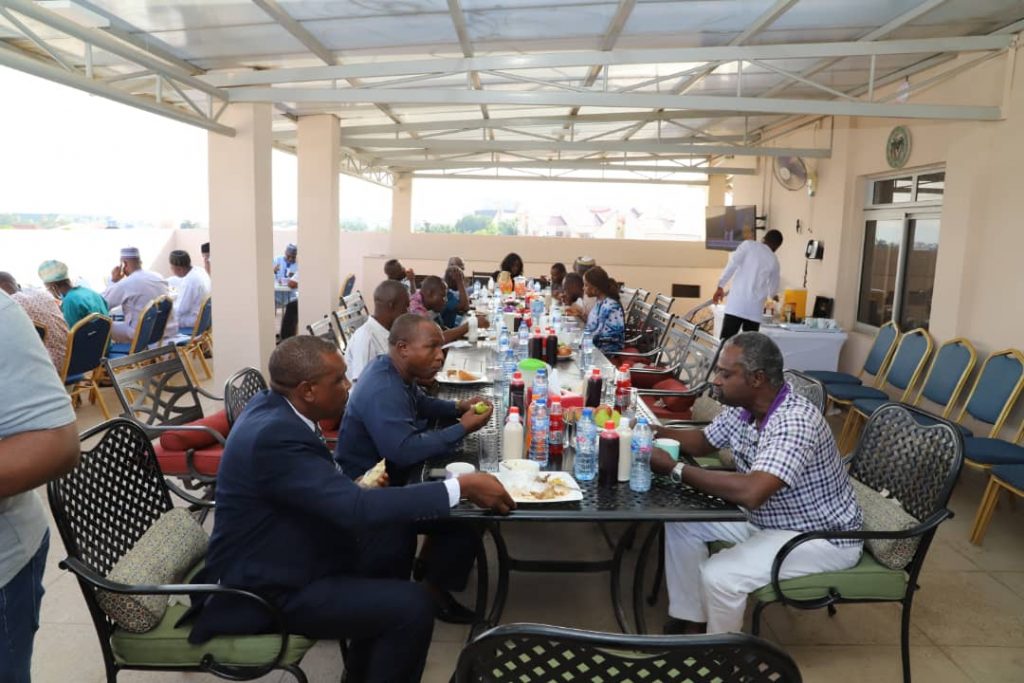
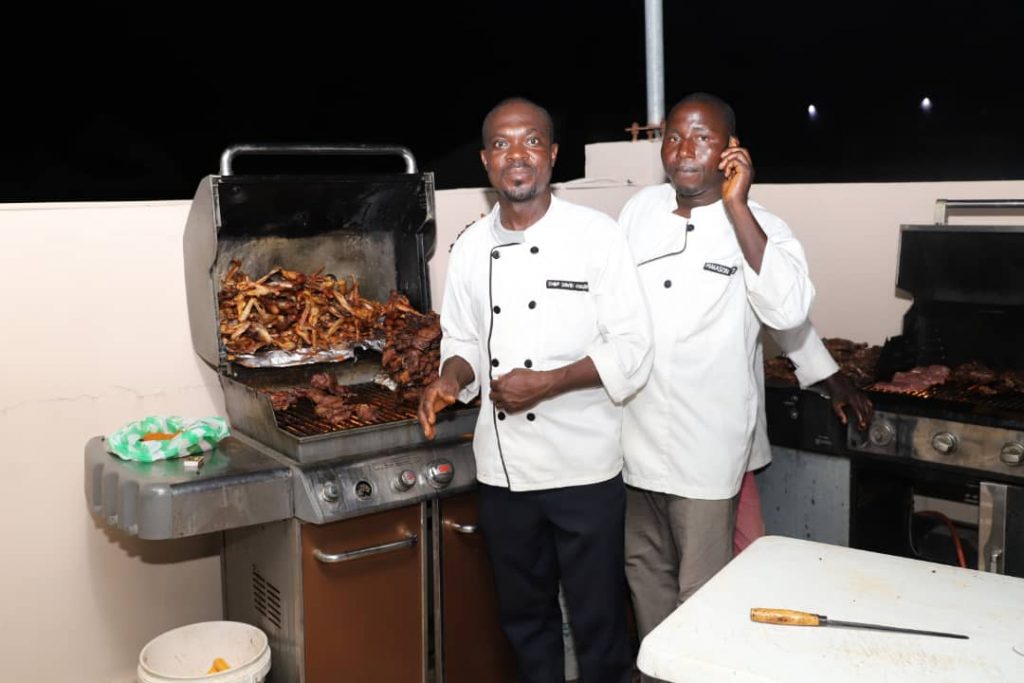
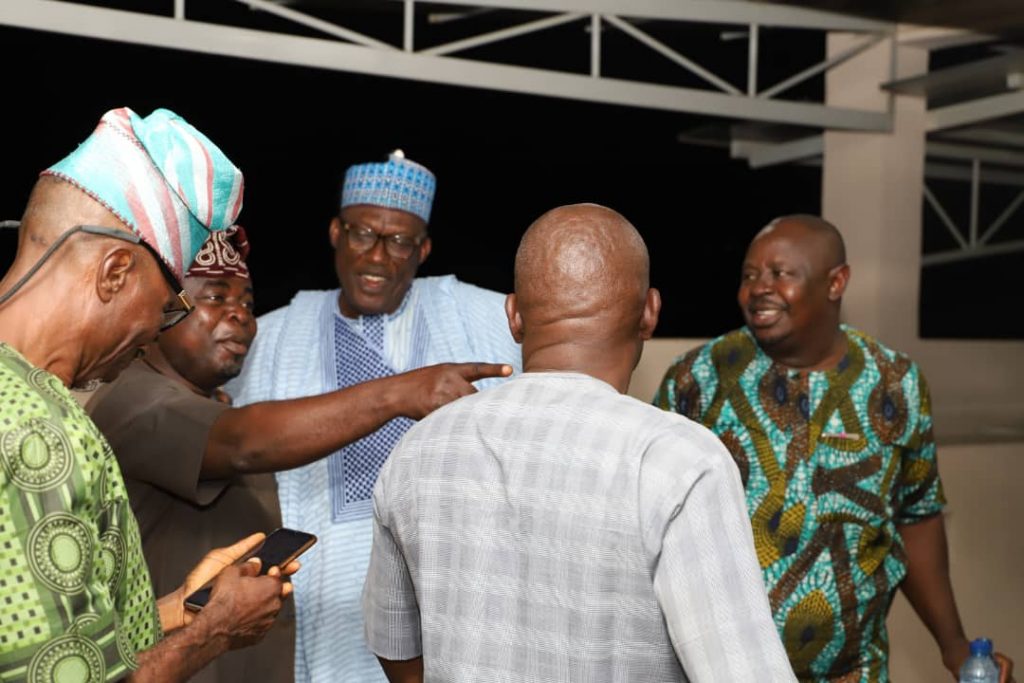
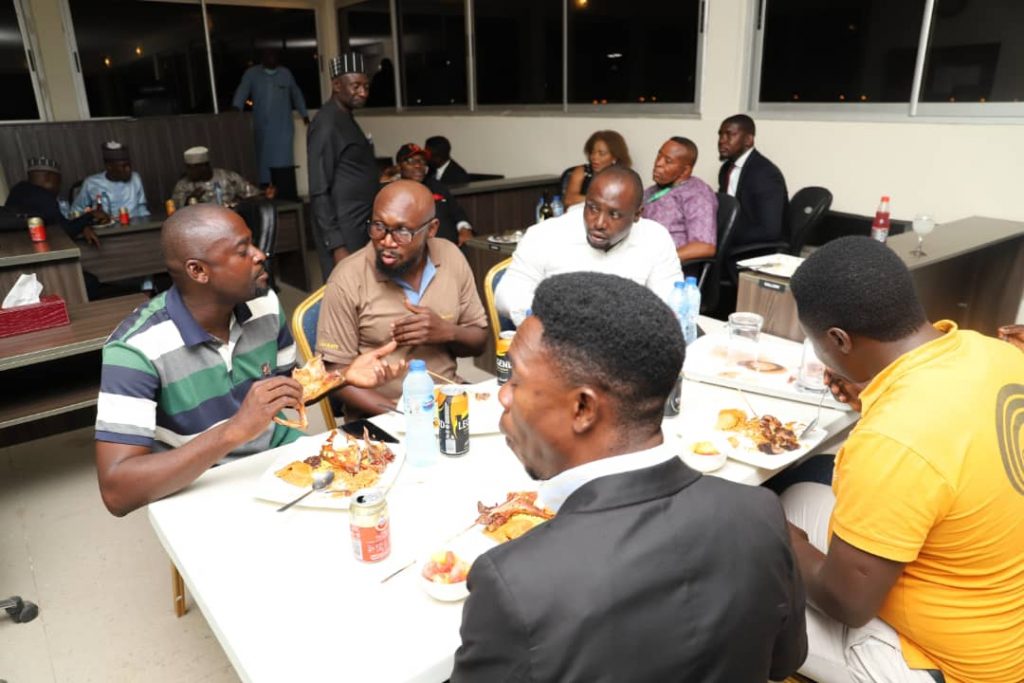
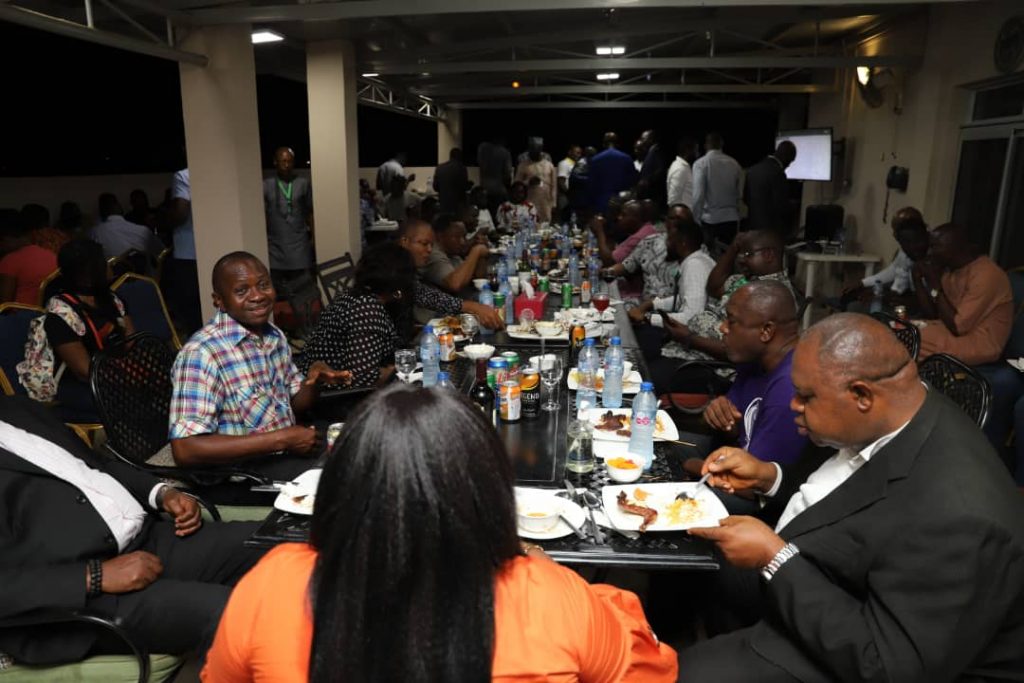
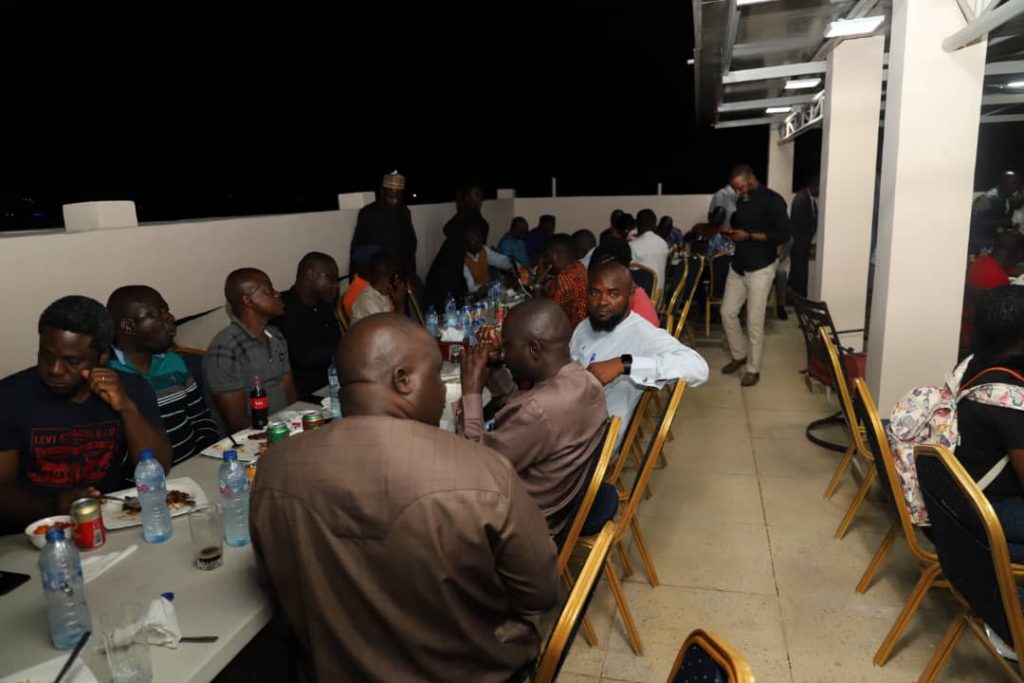
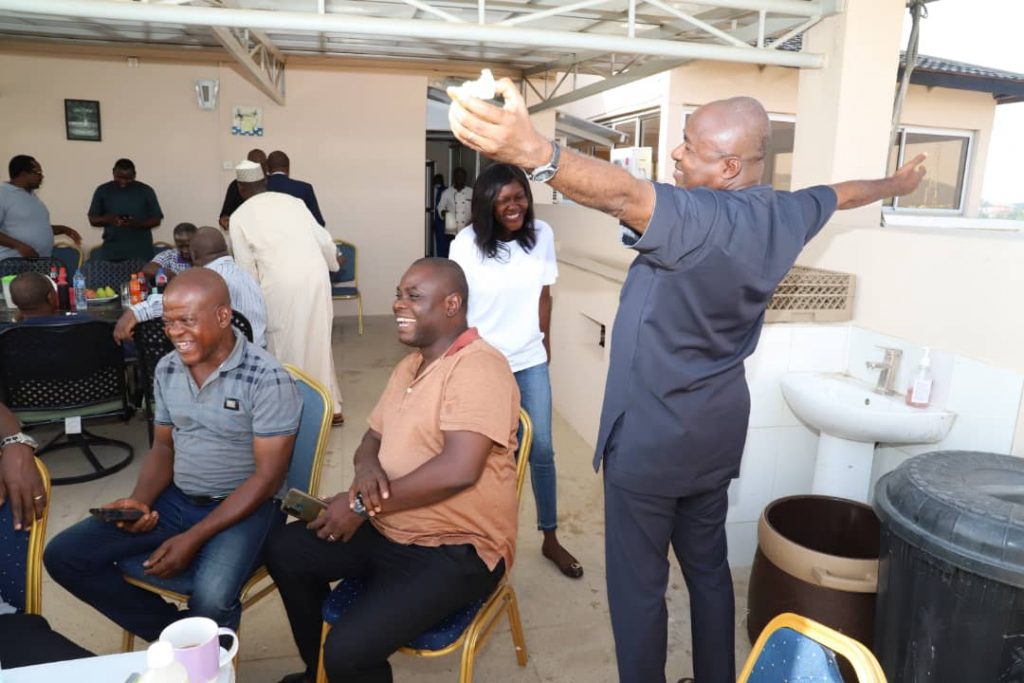
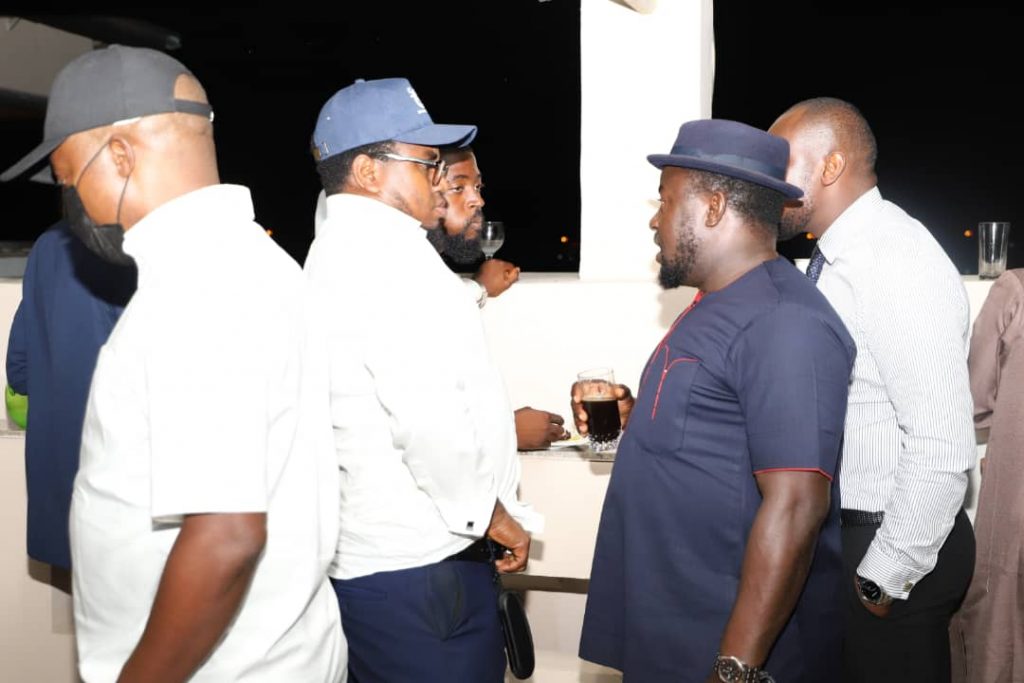
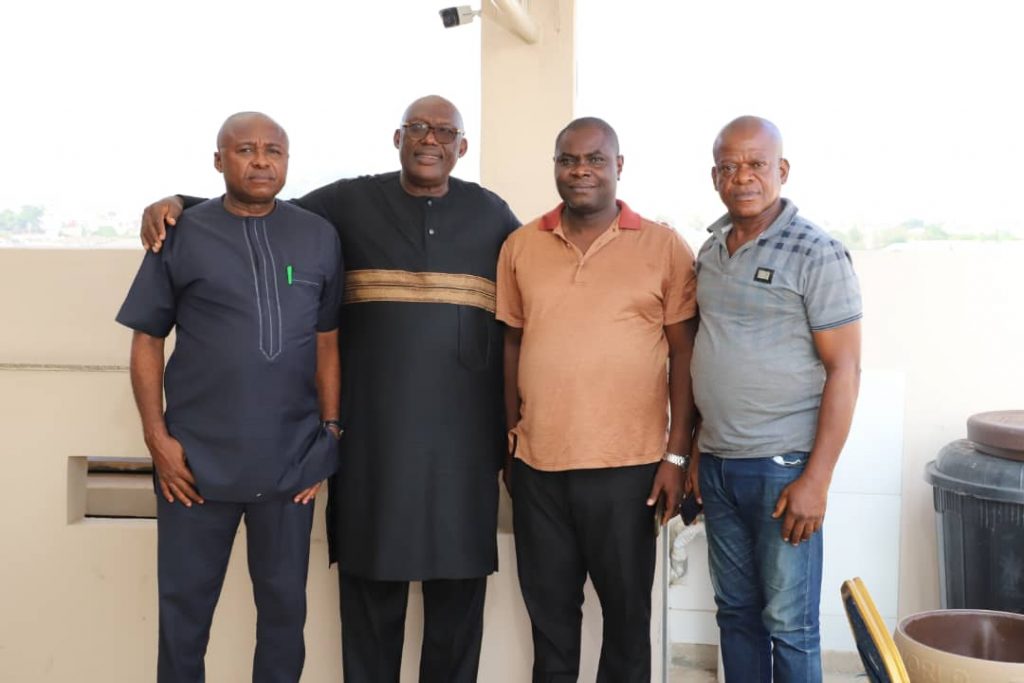
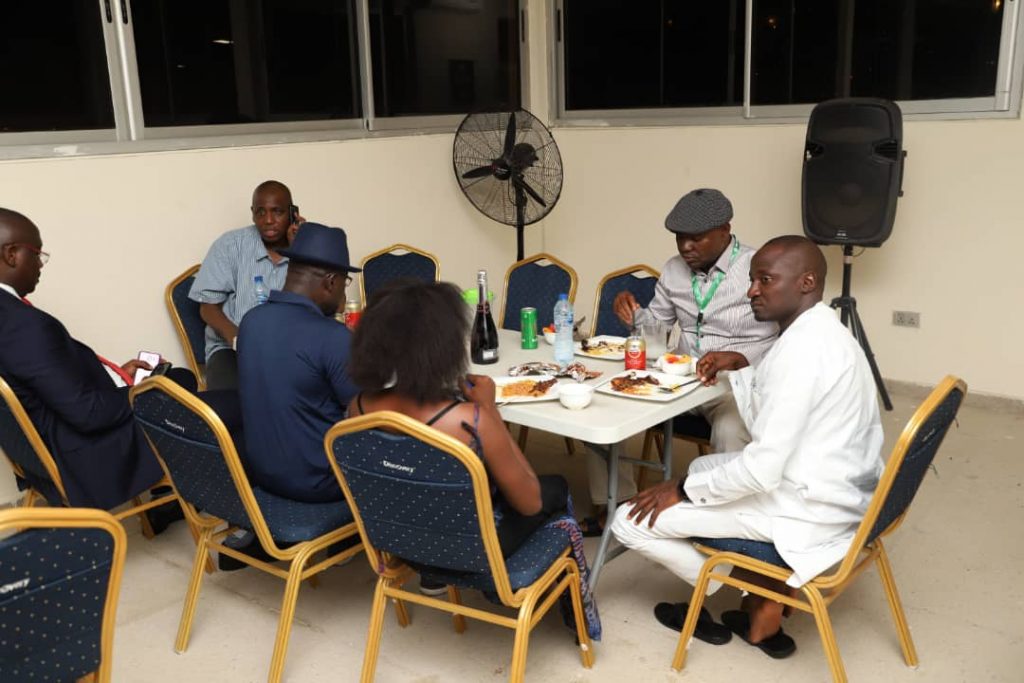
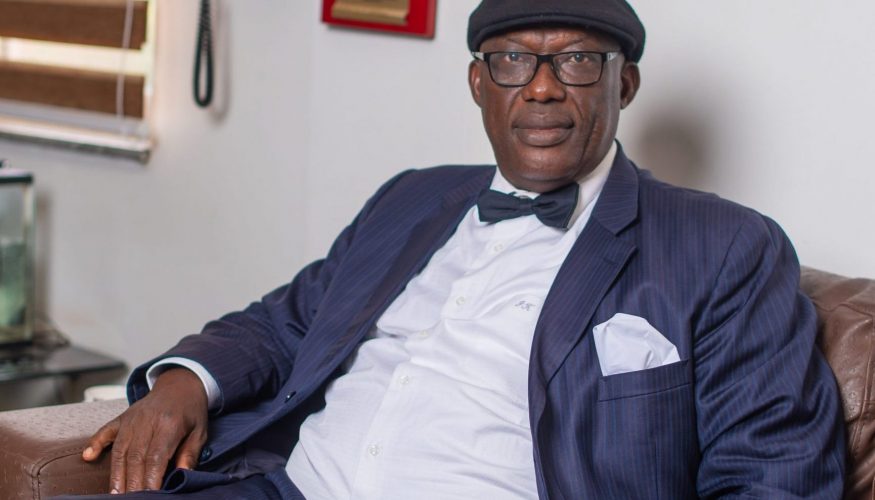

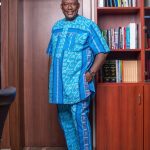

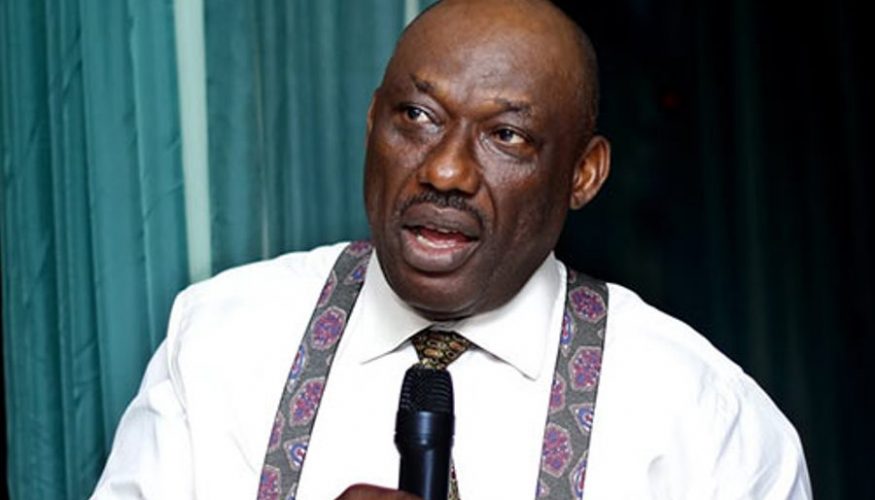
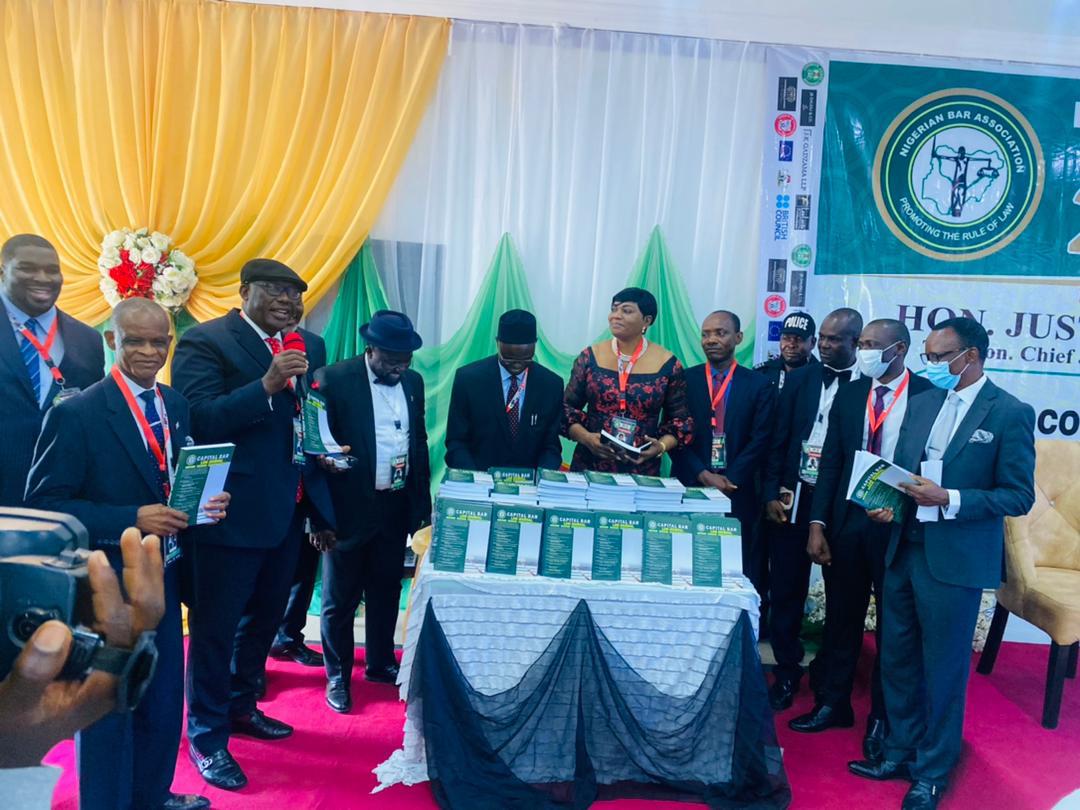
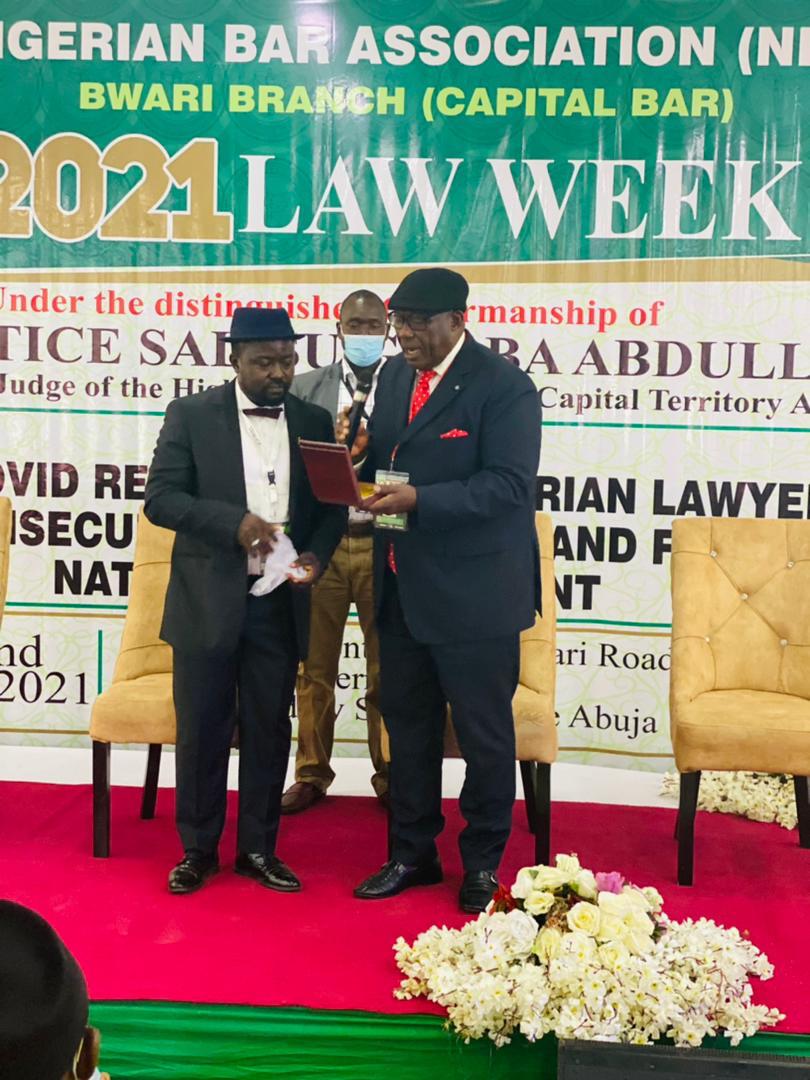
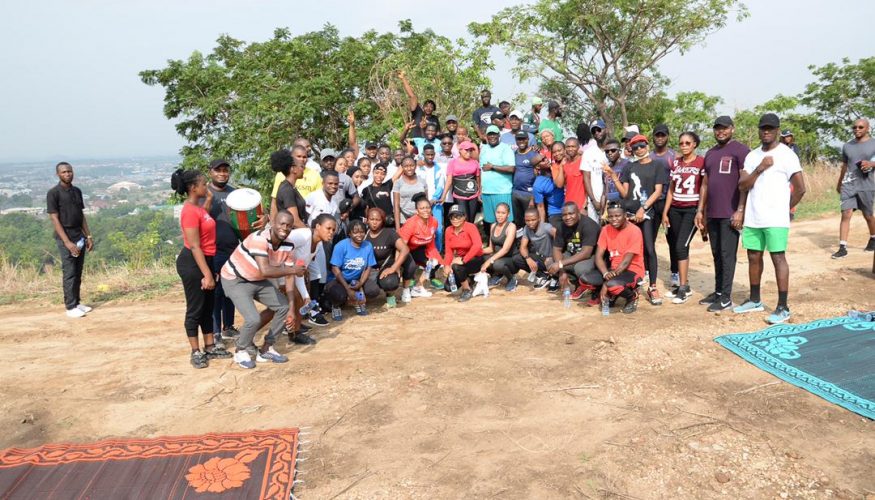
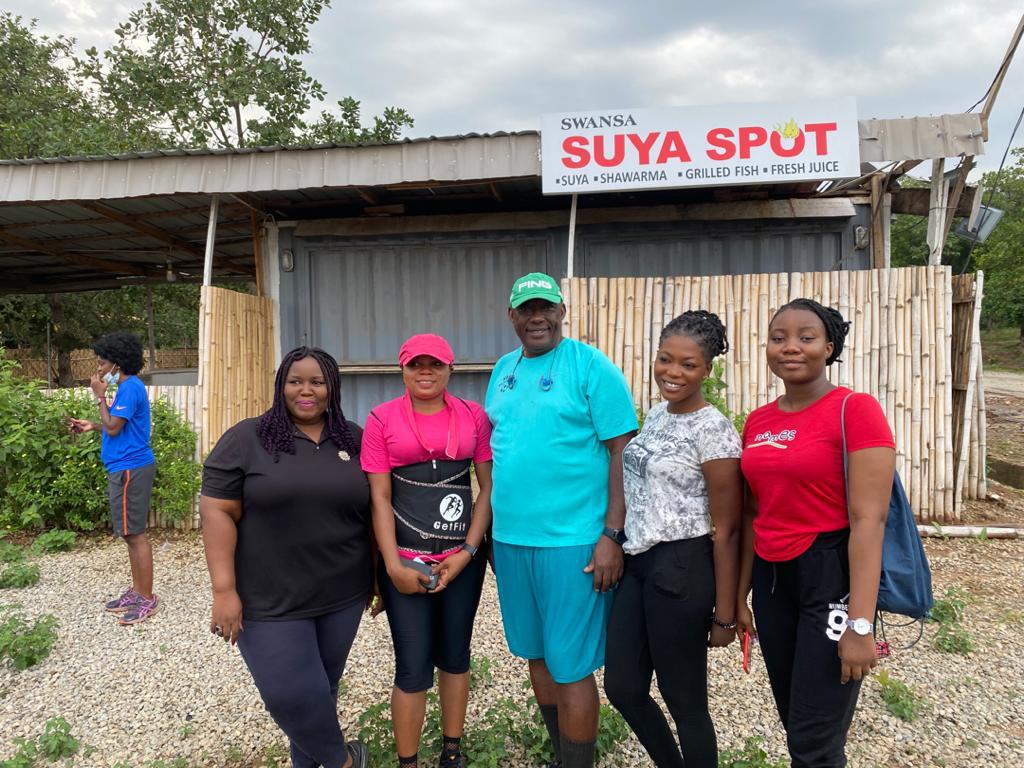
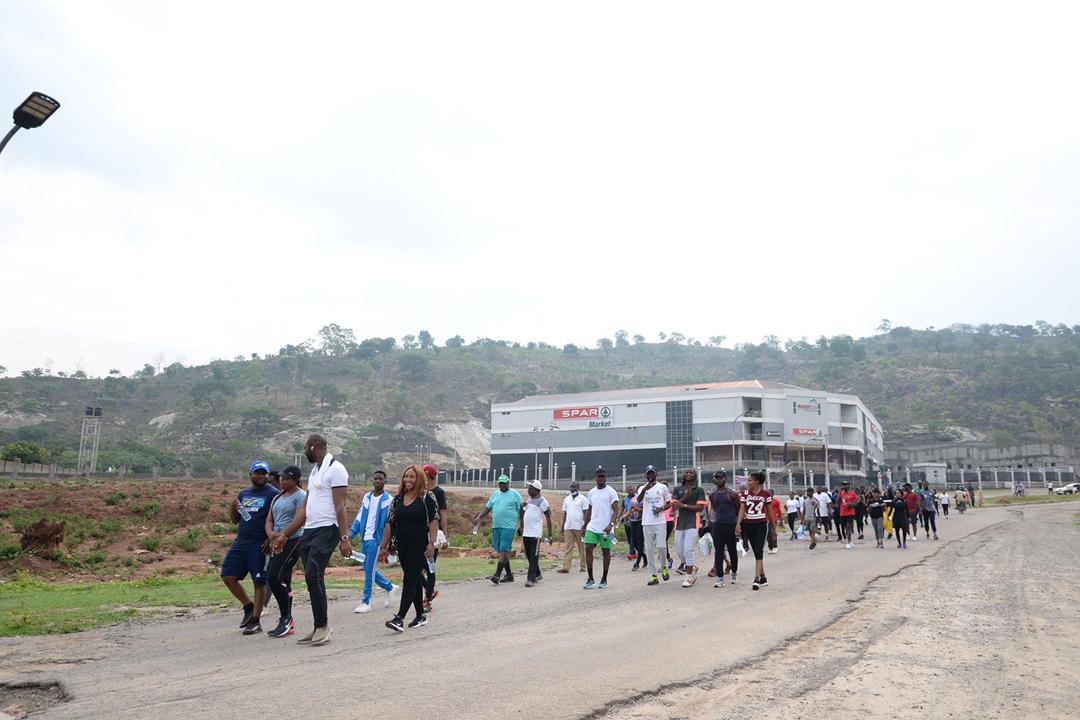
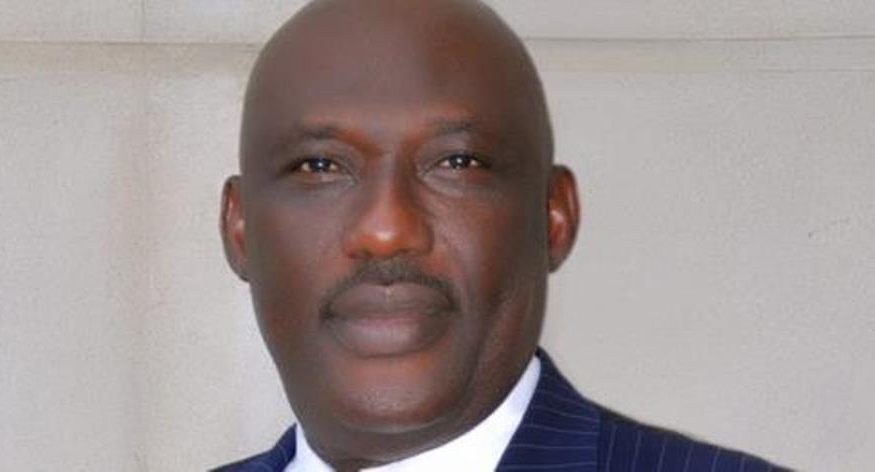
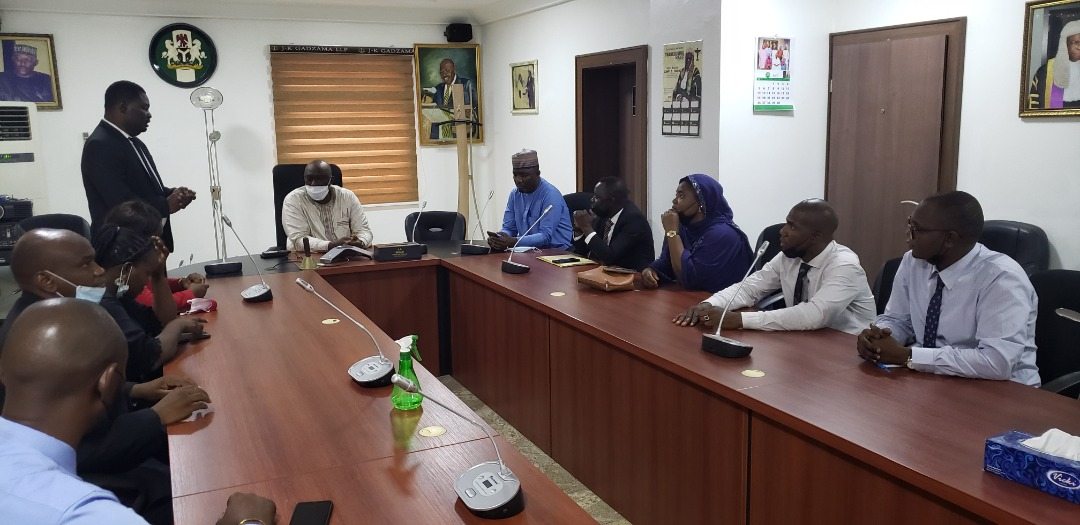
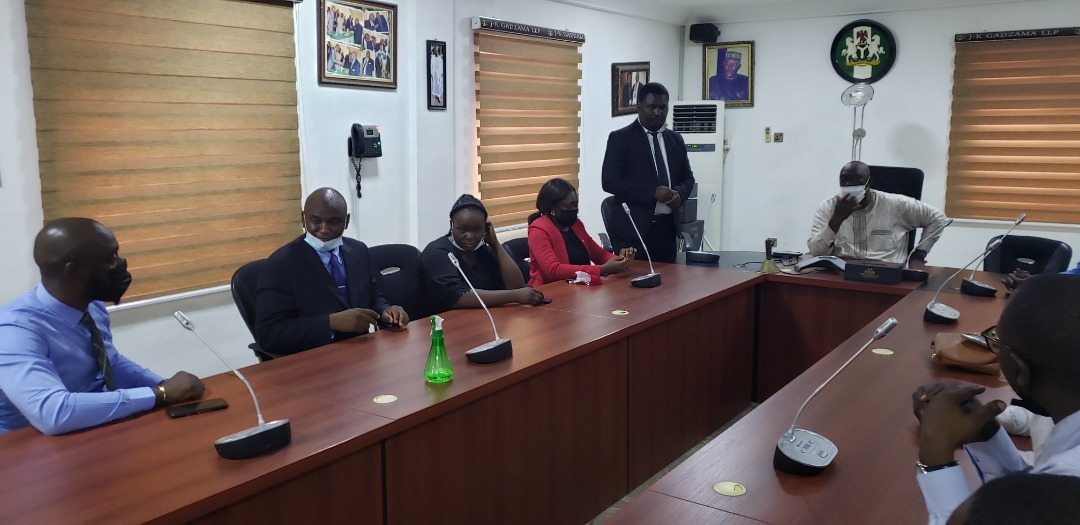
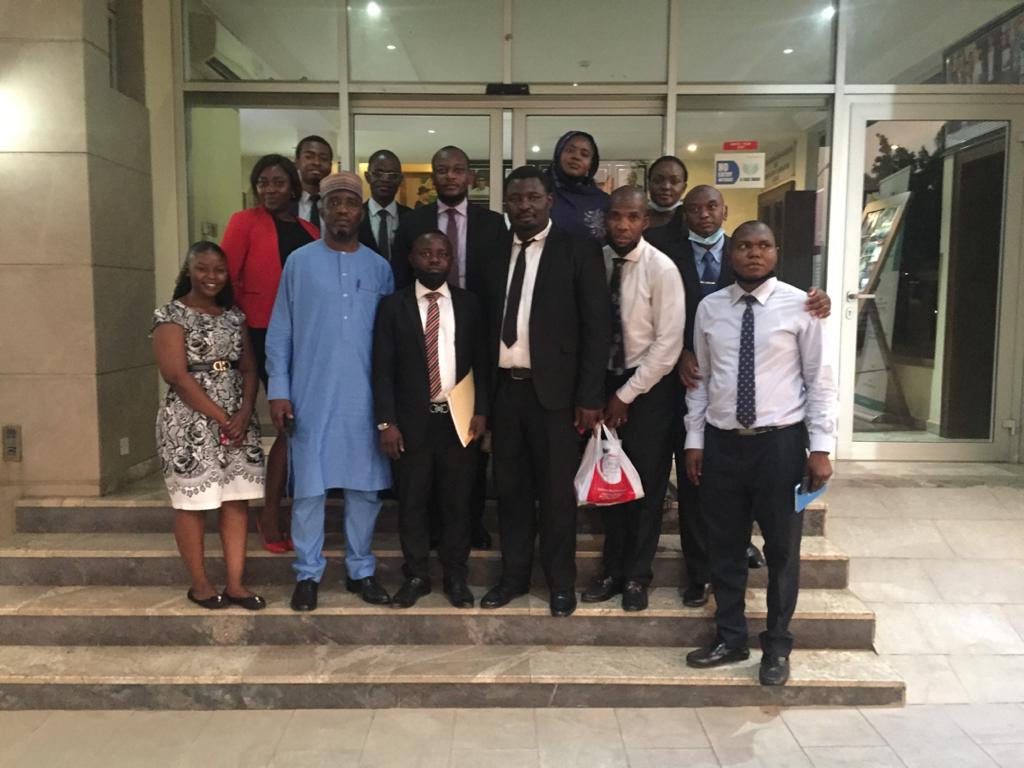
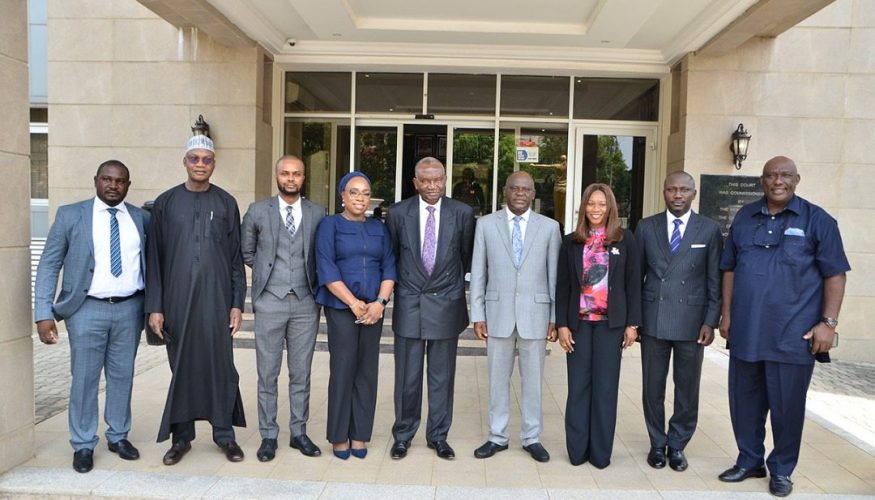
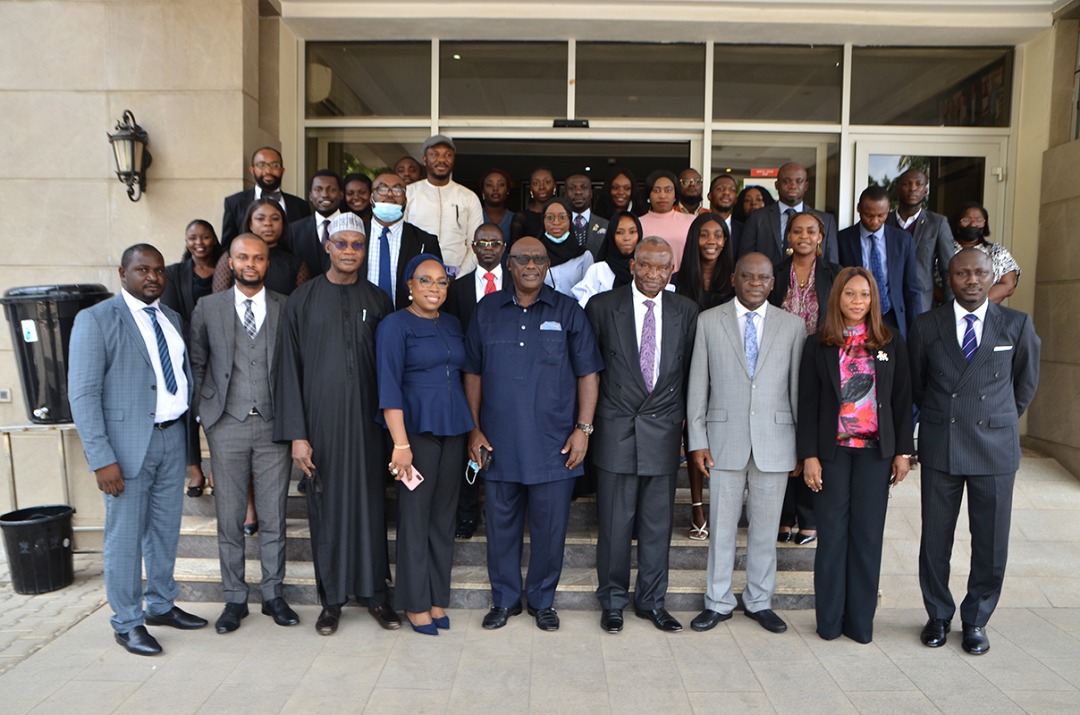
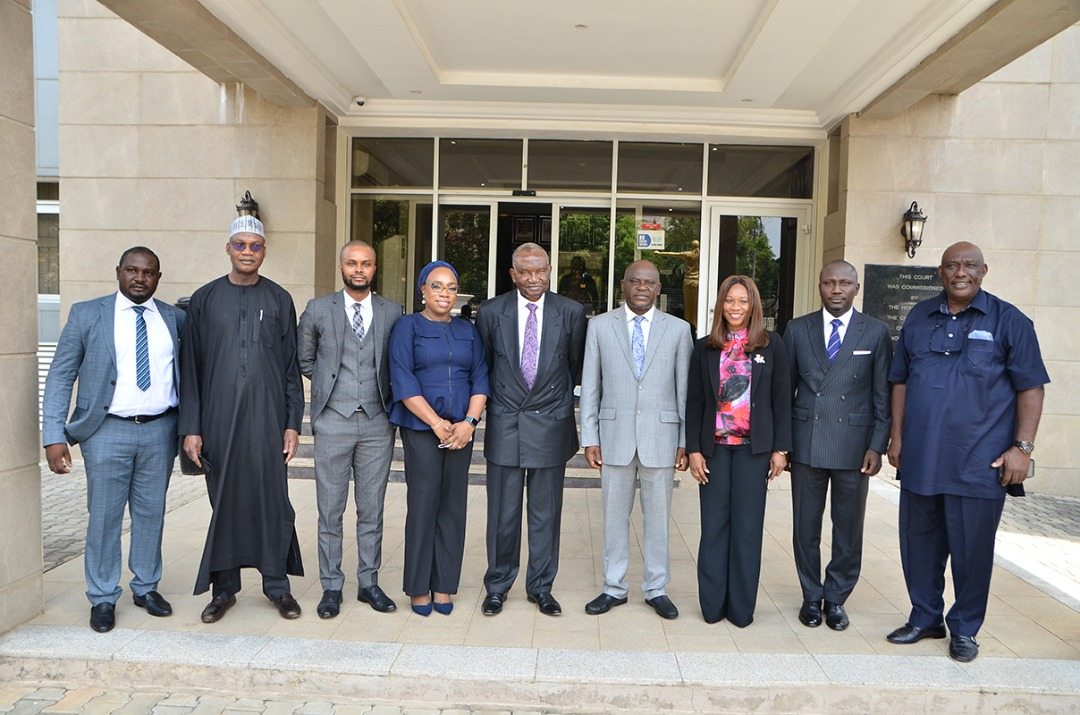
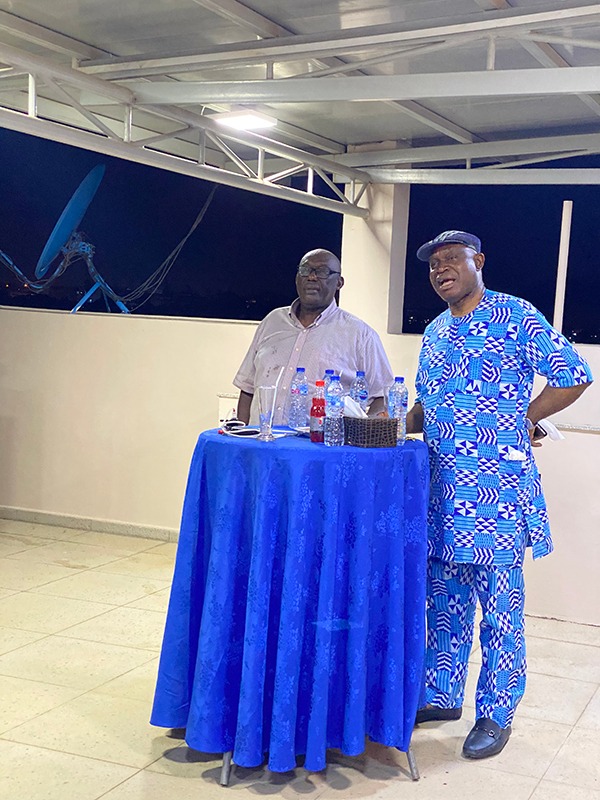
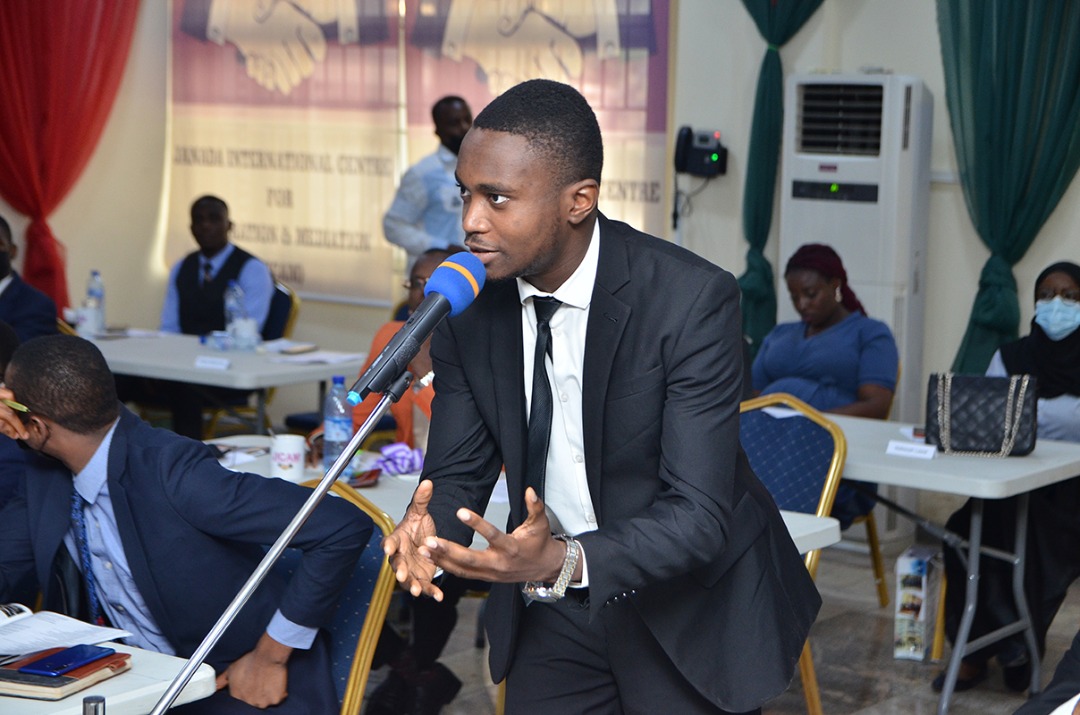
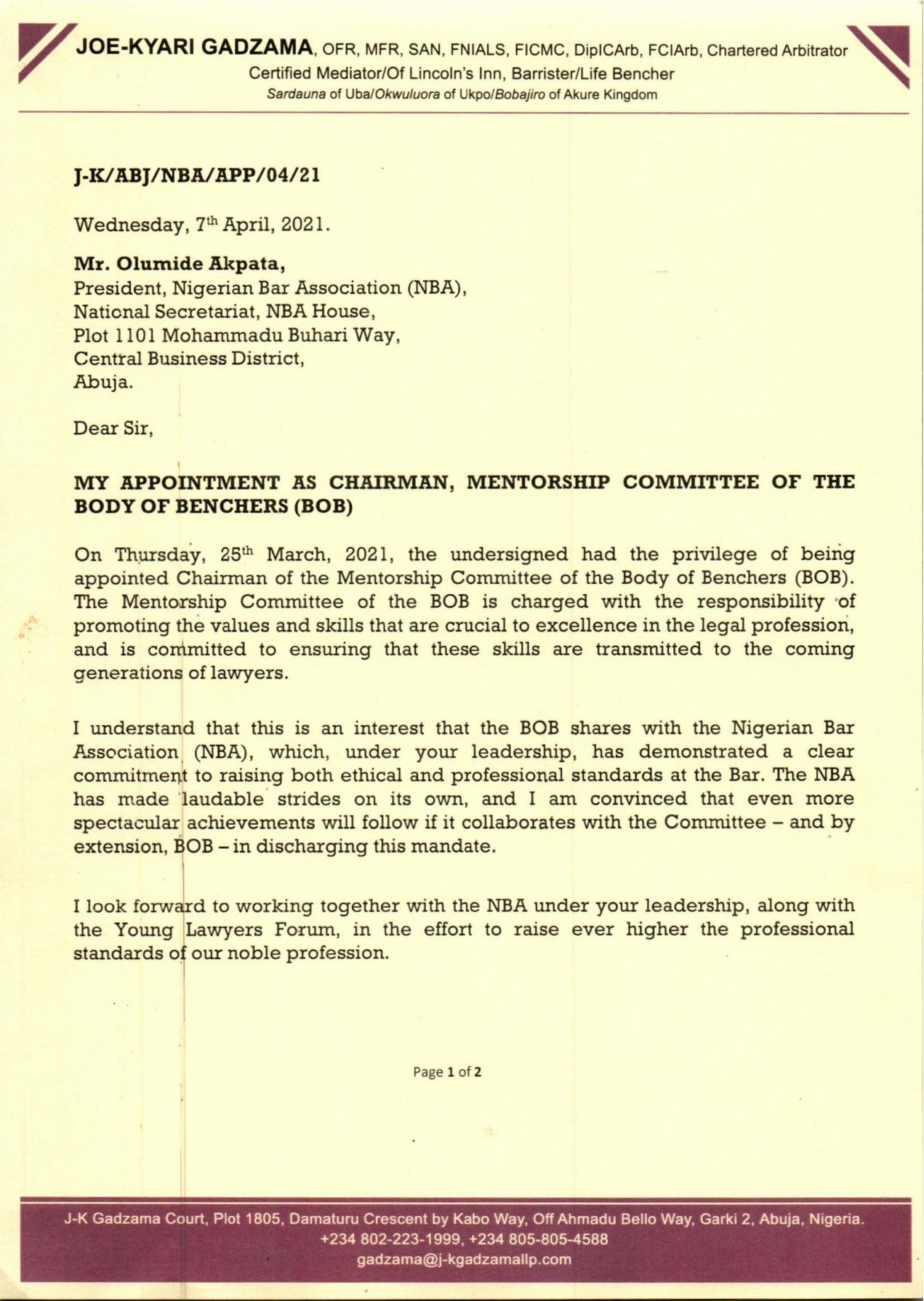
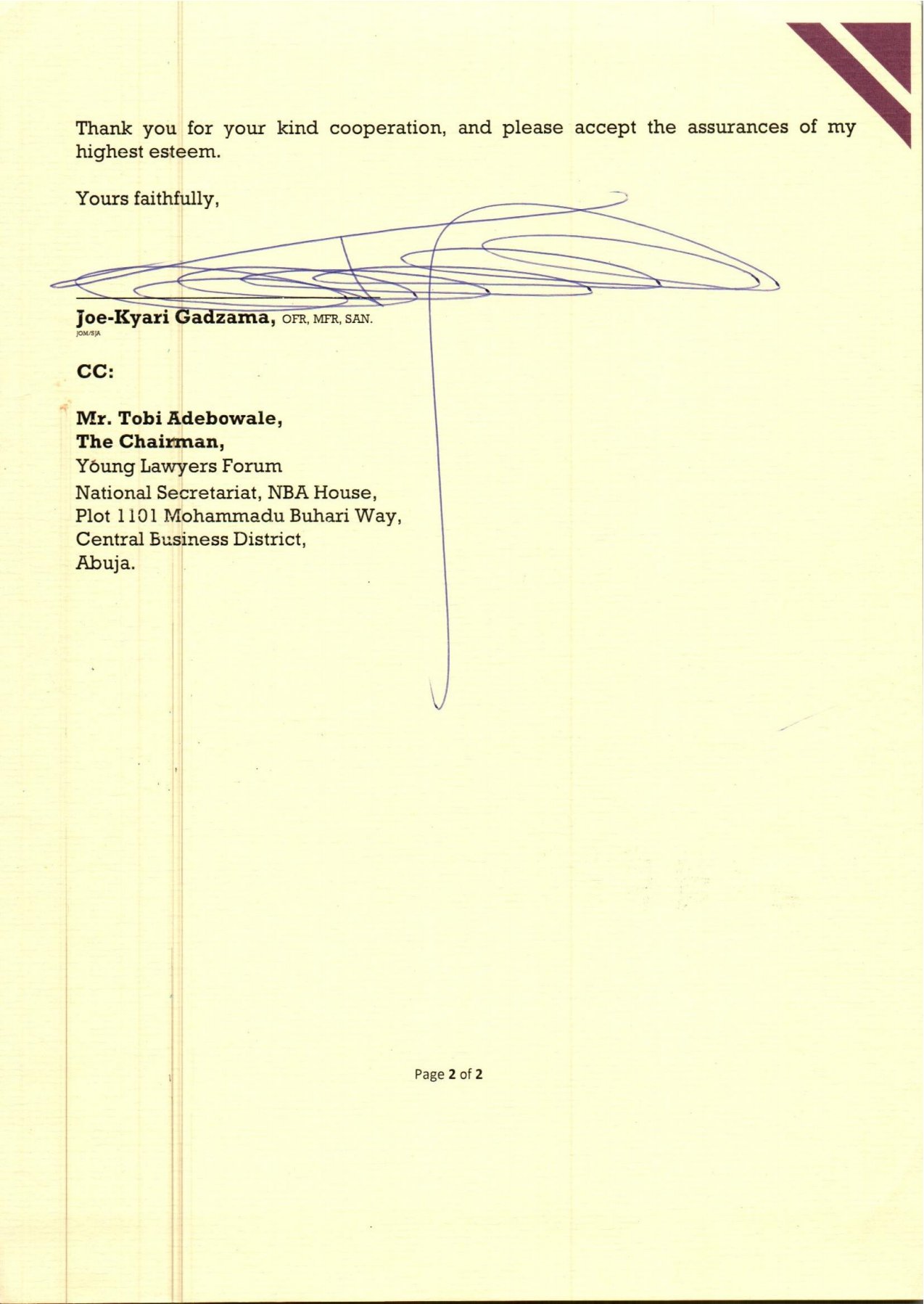
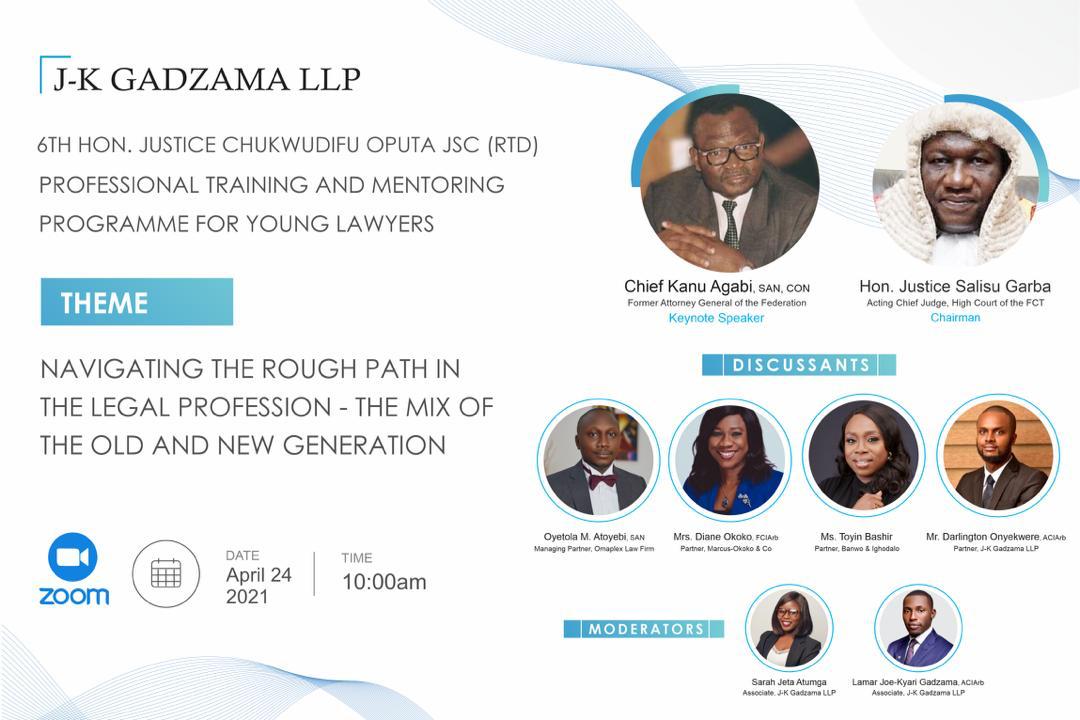 Copyright 2020
Copyright 2020